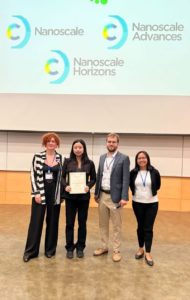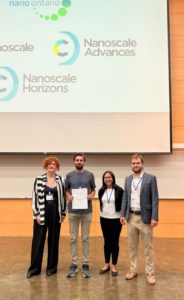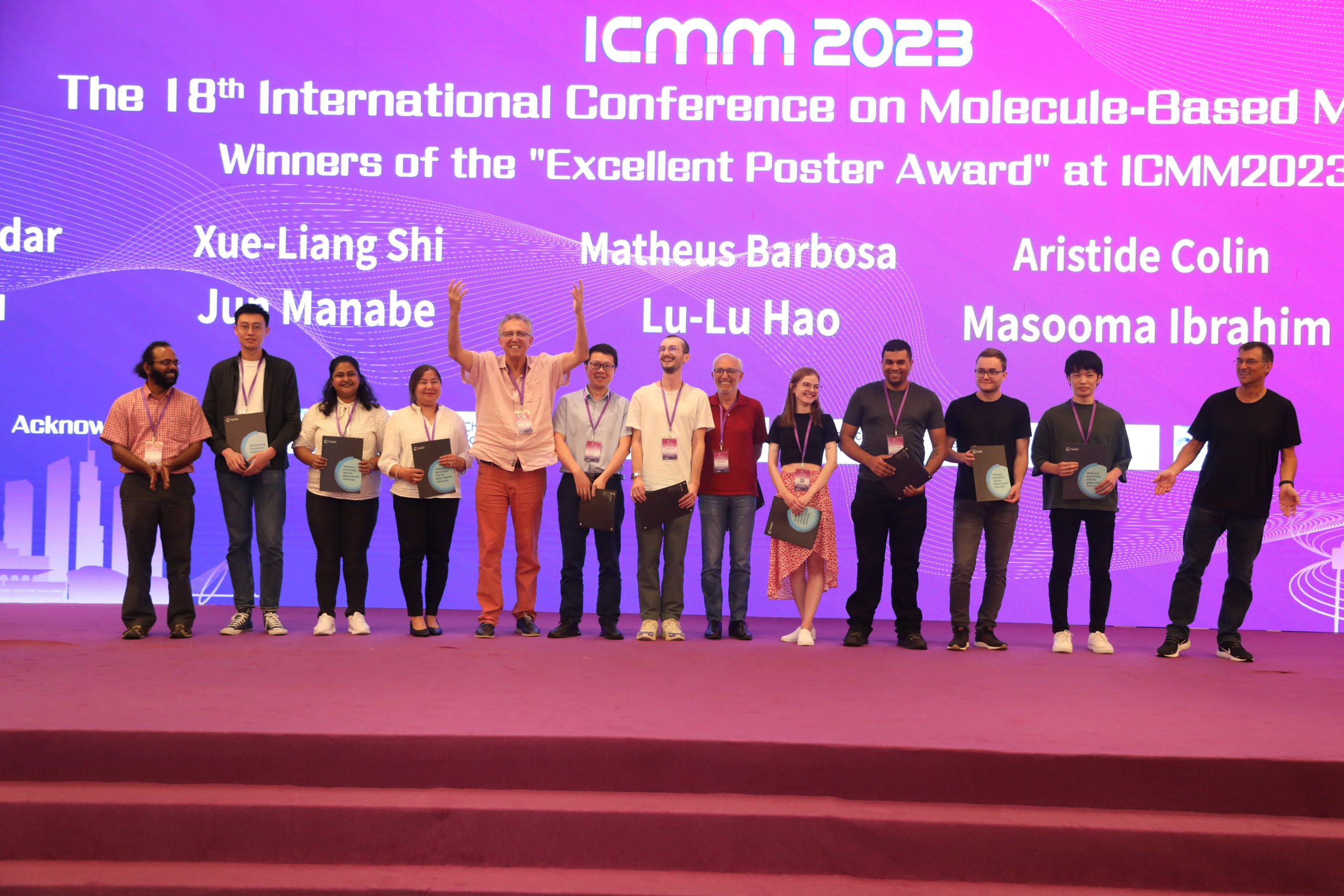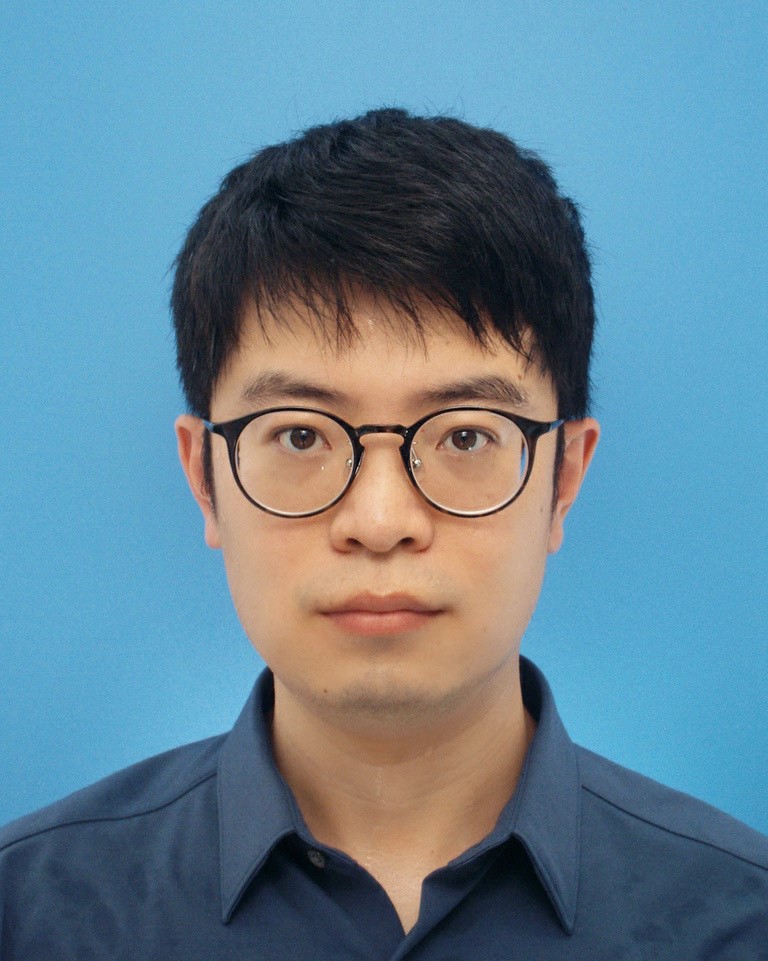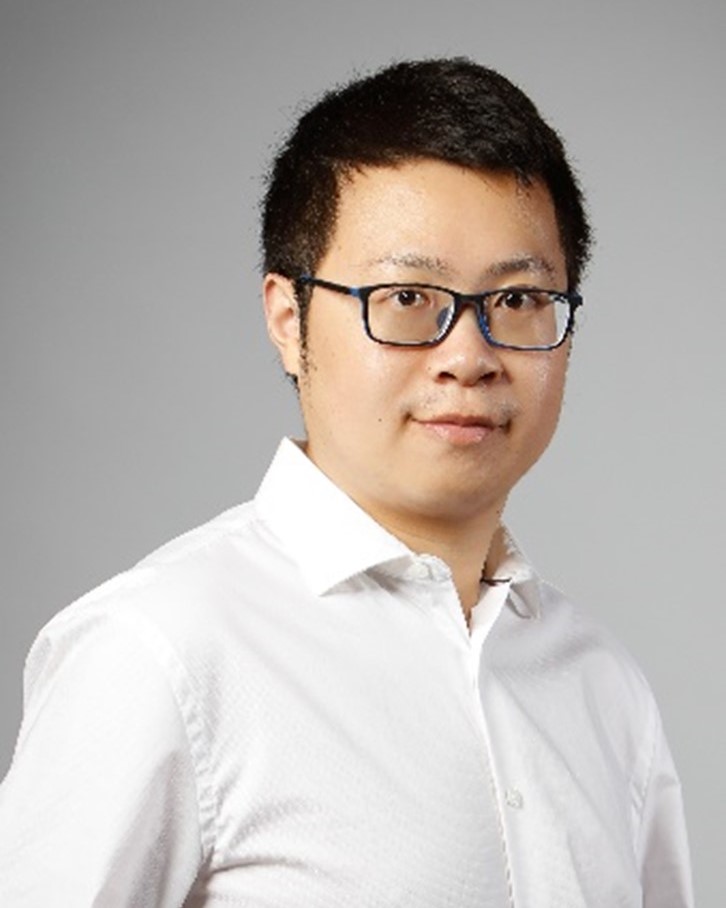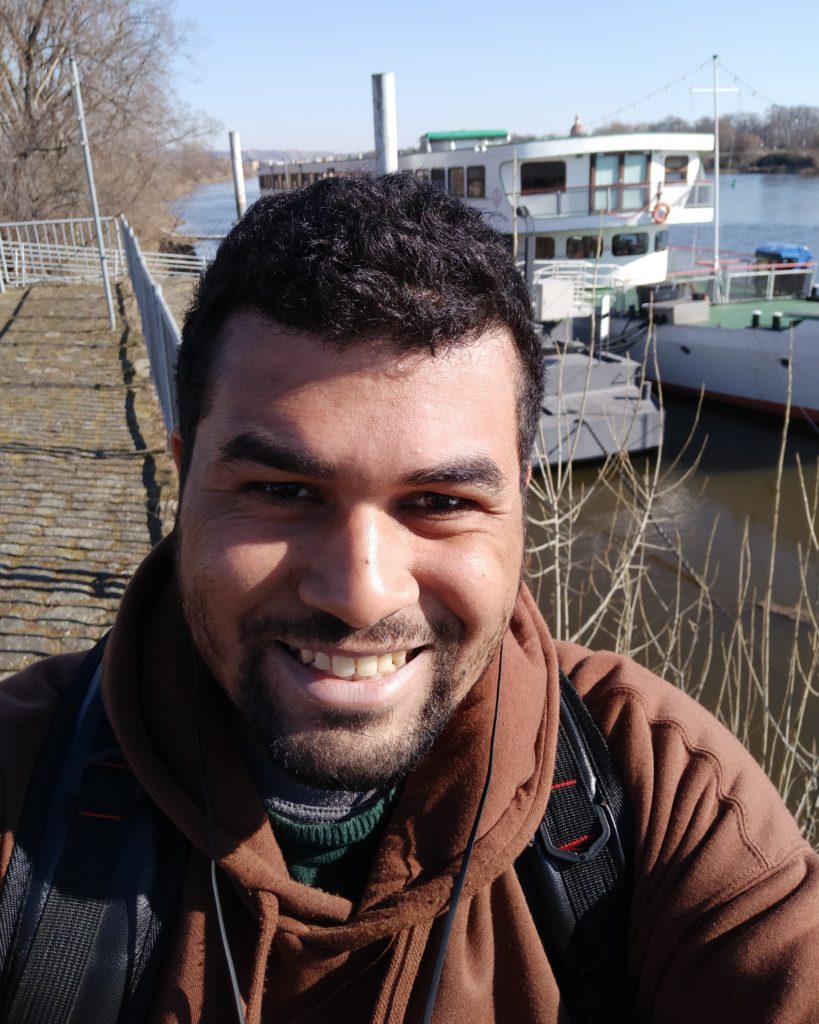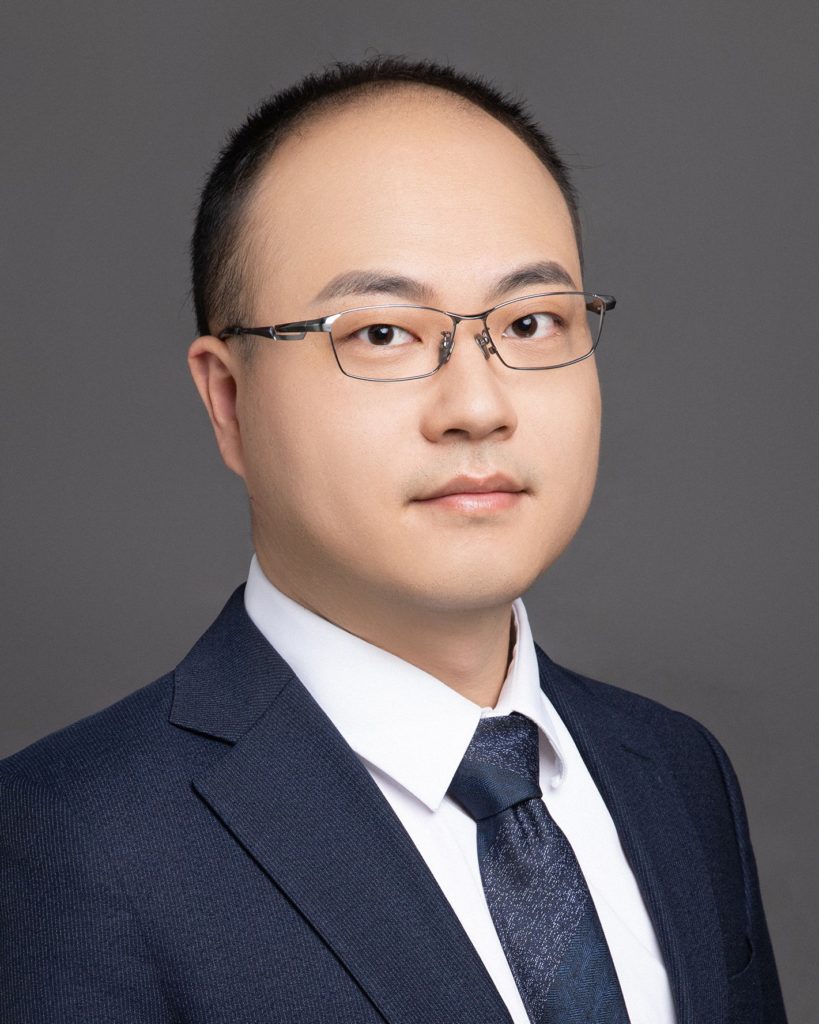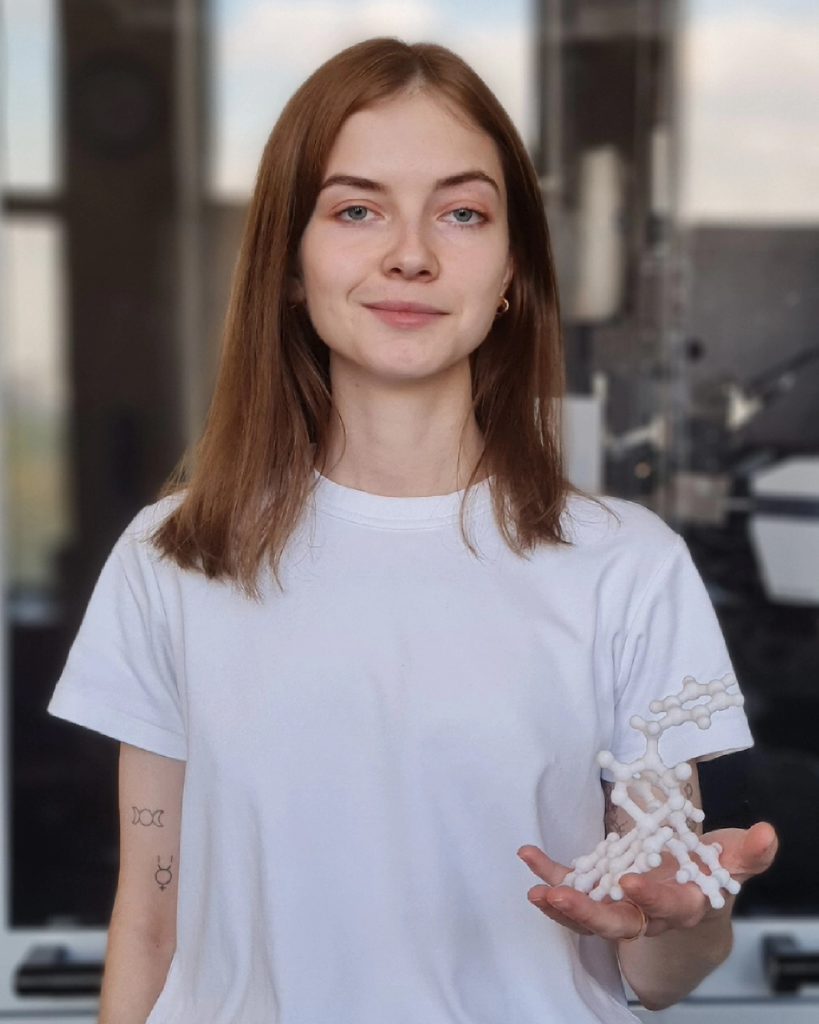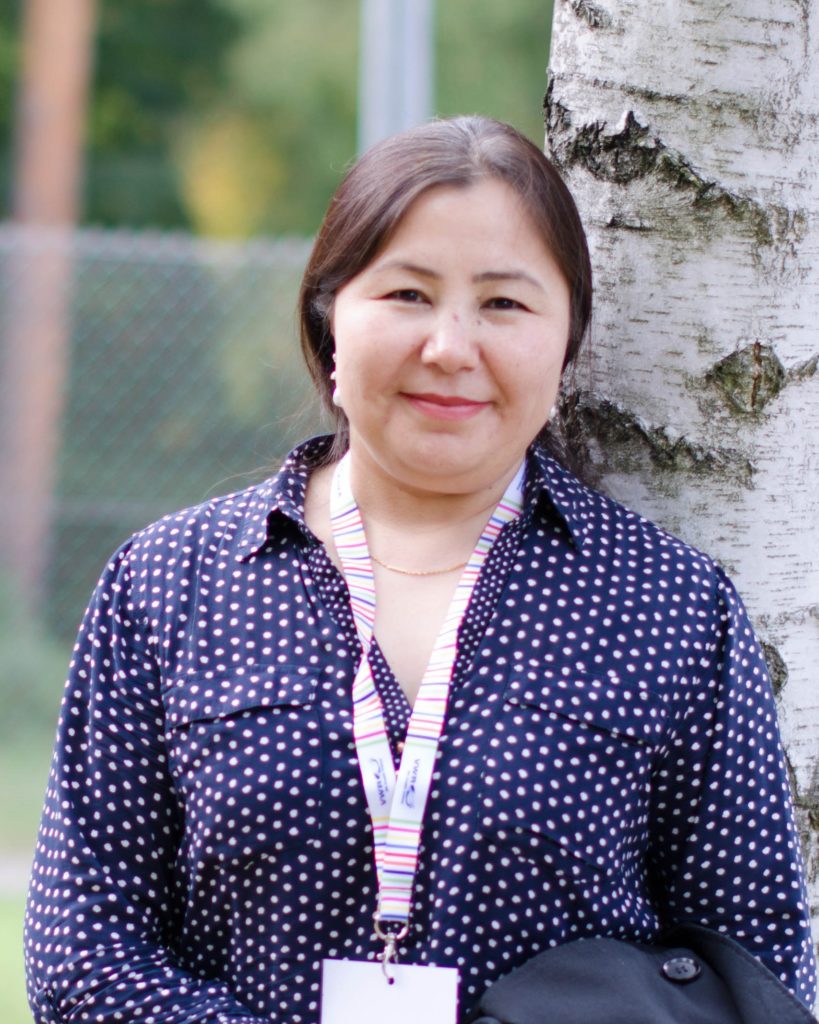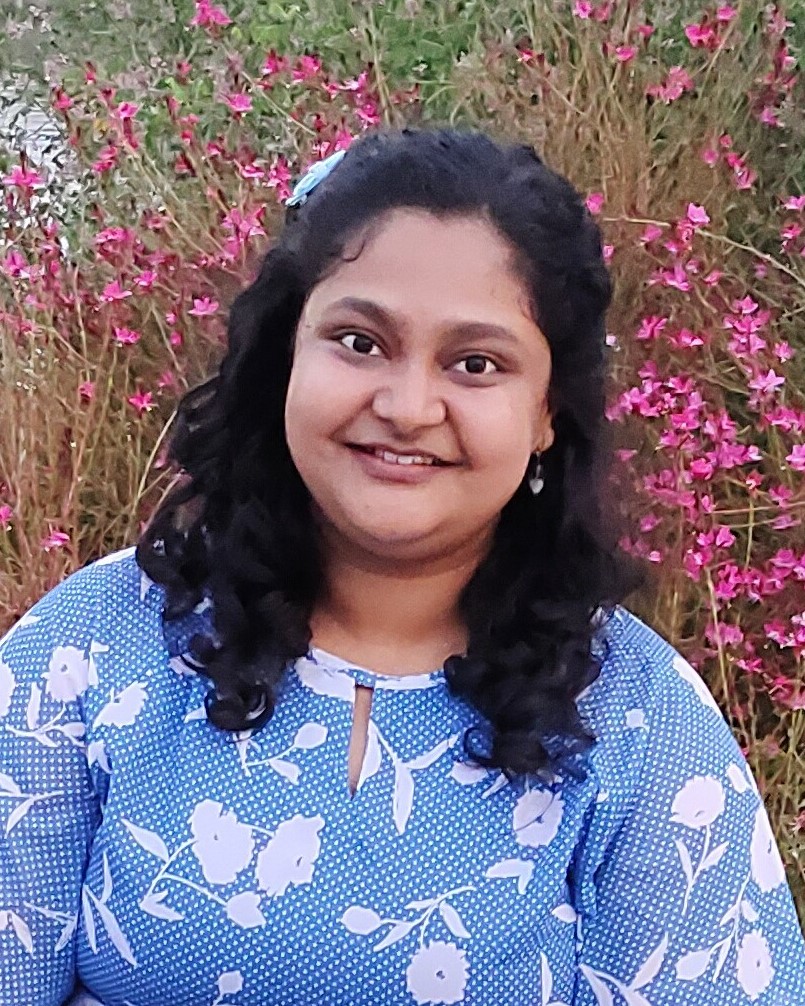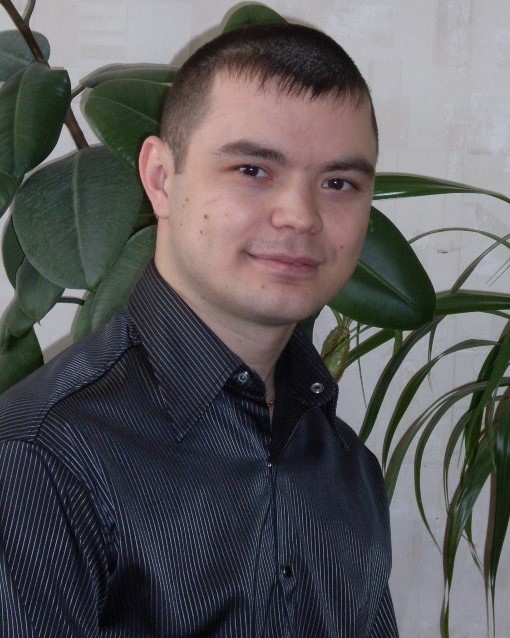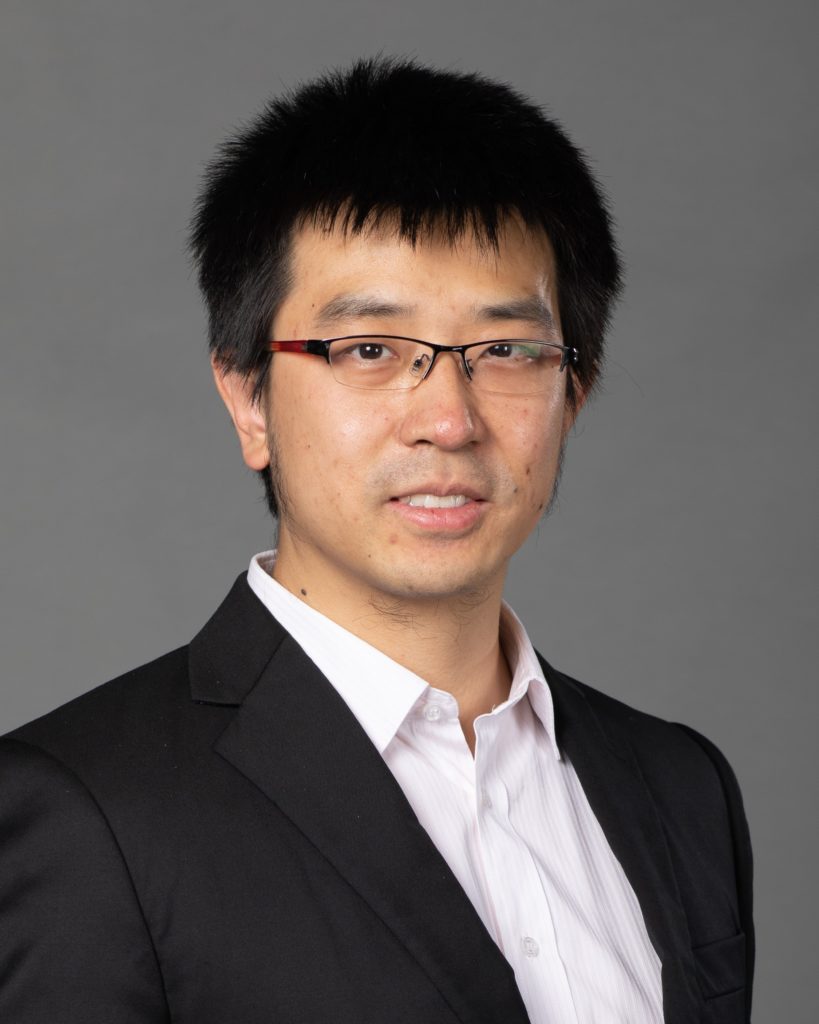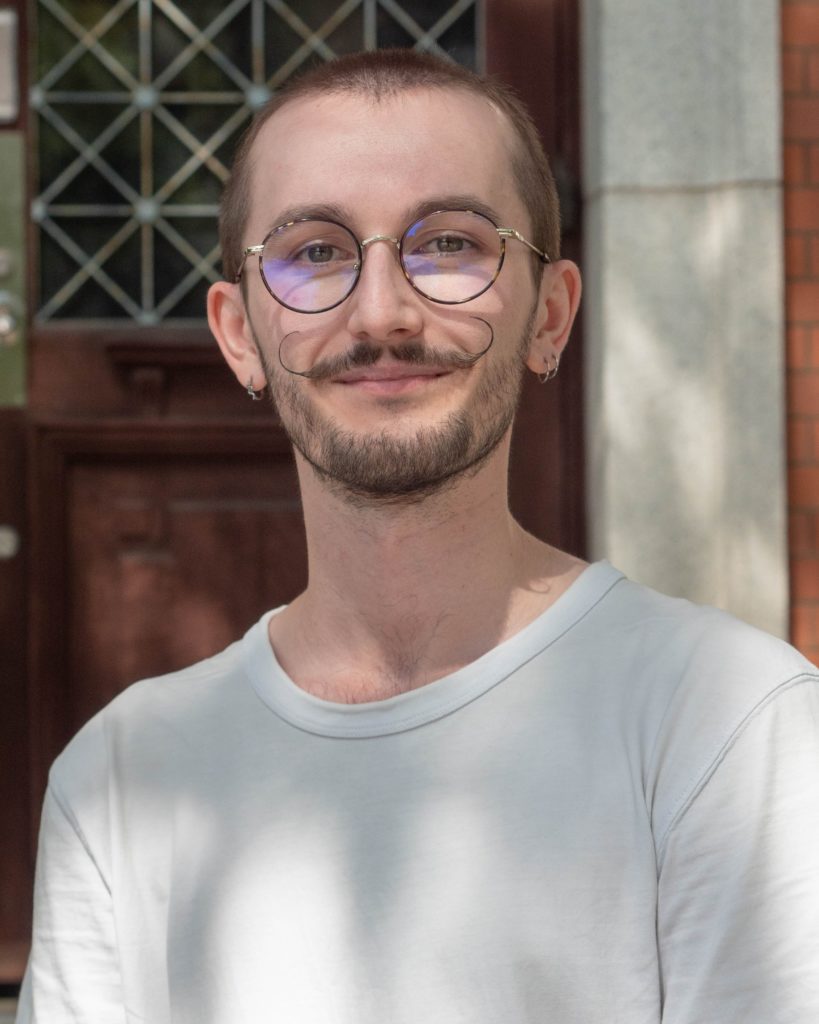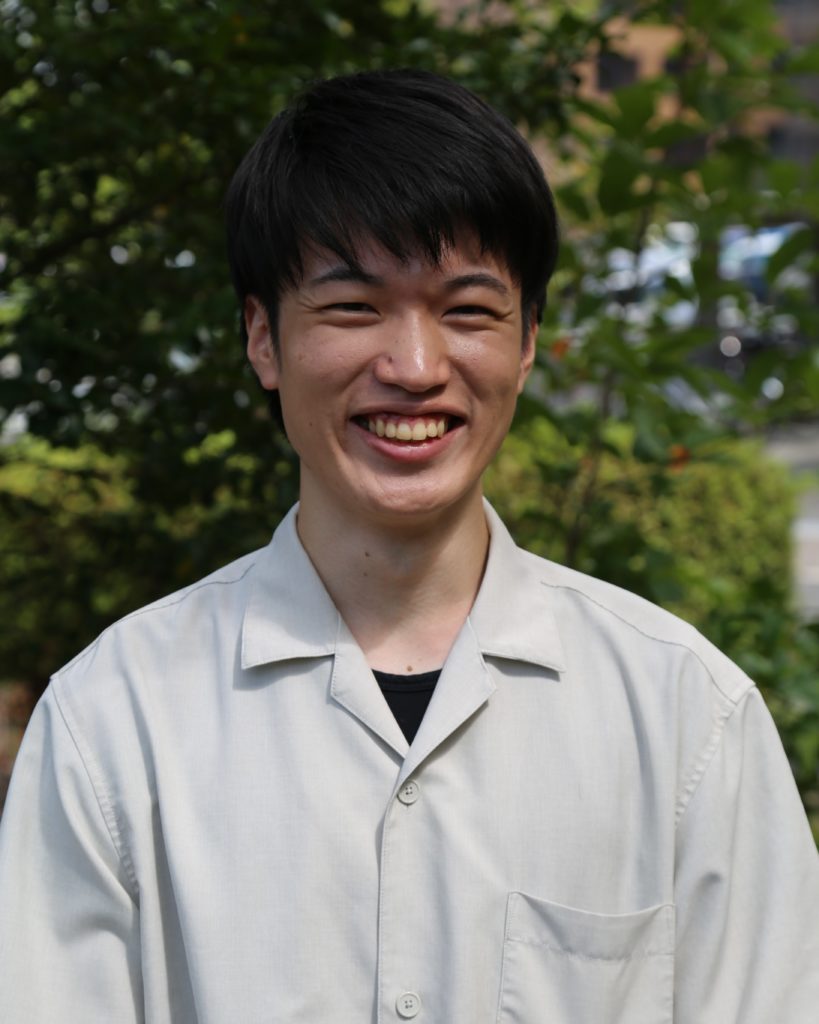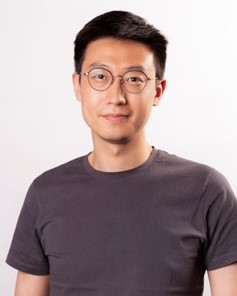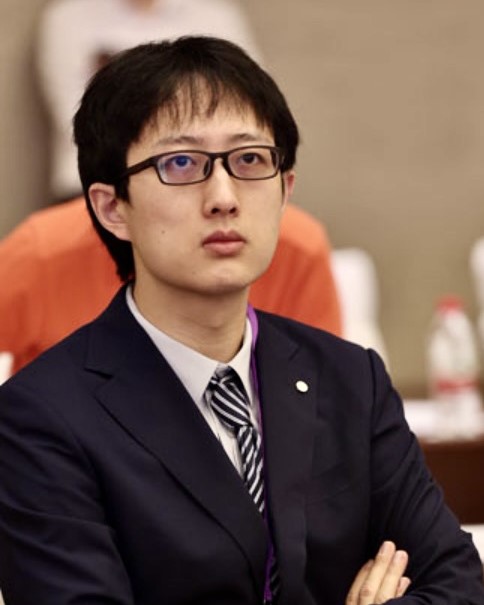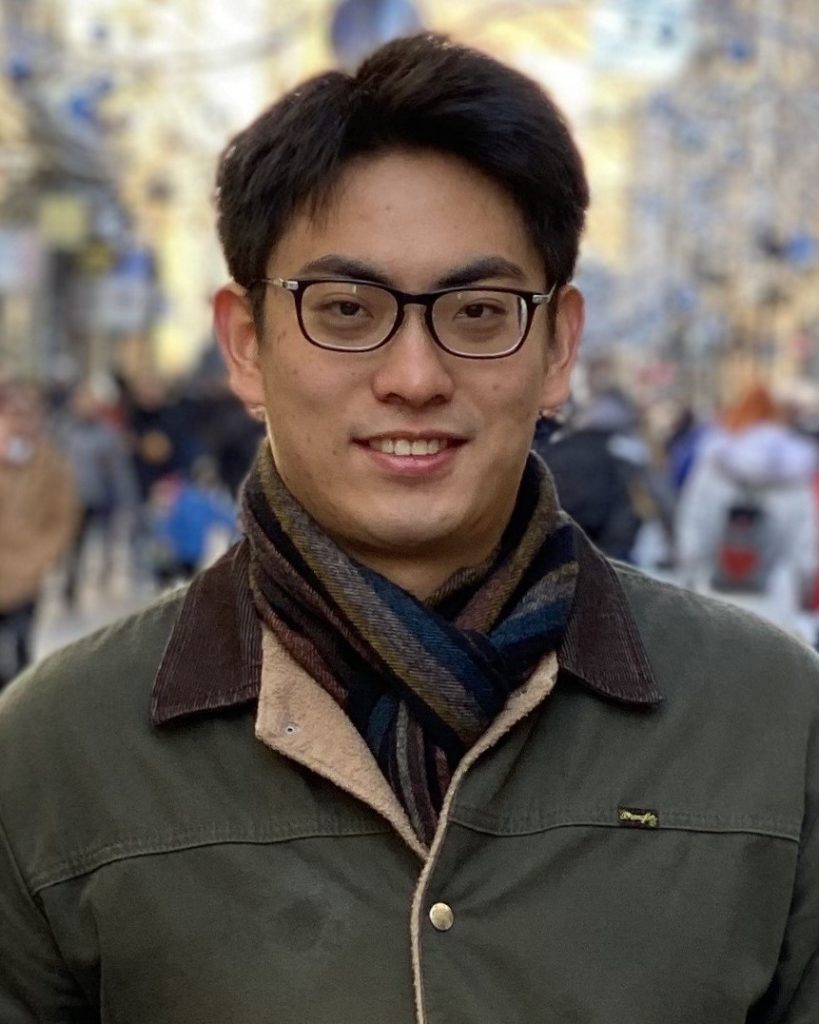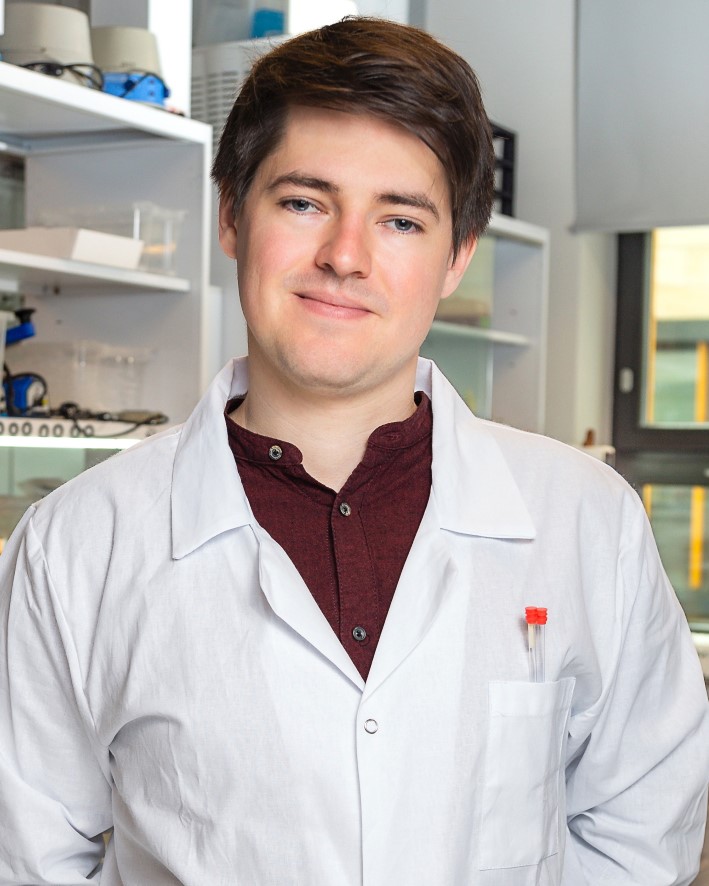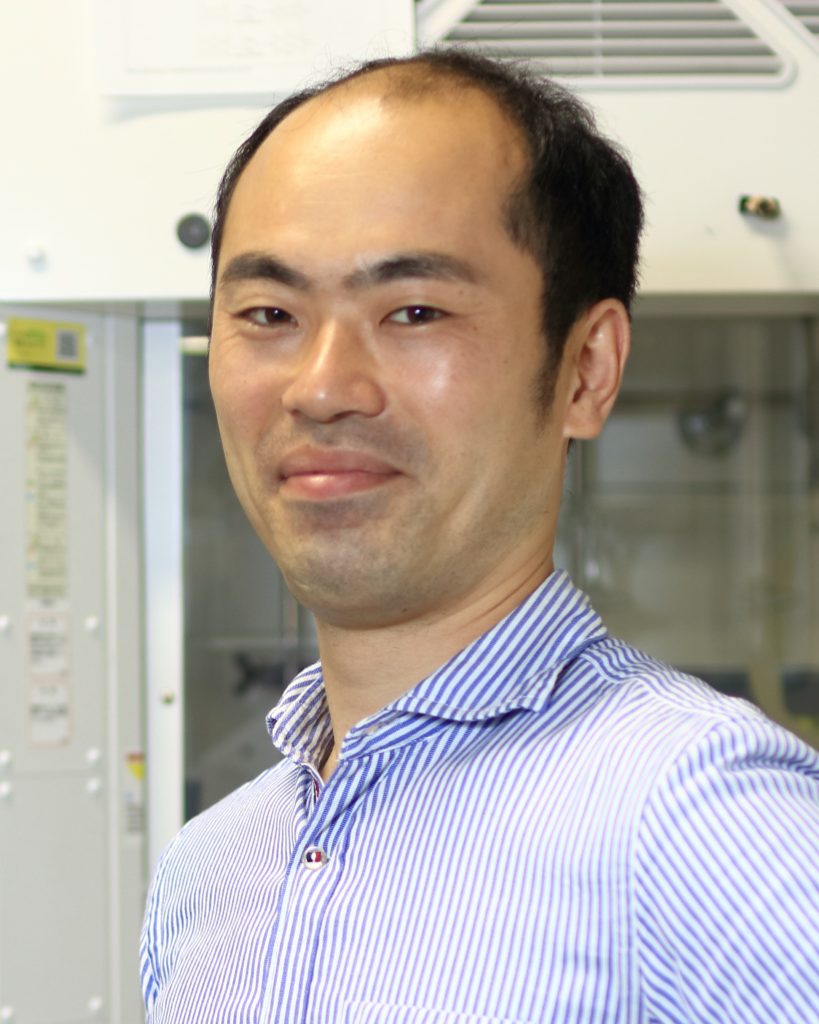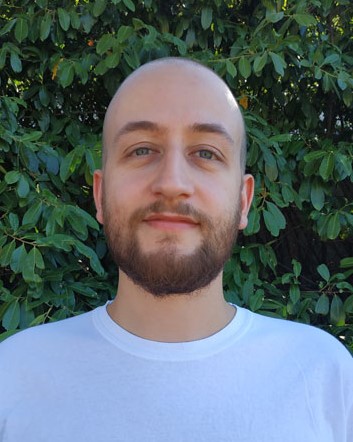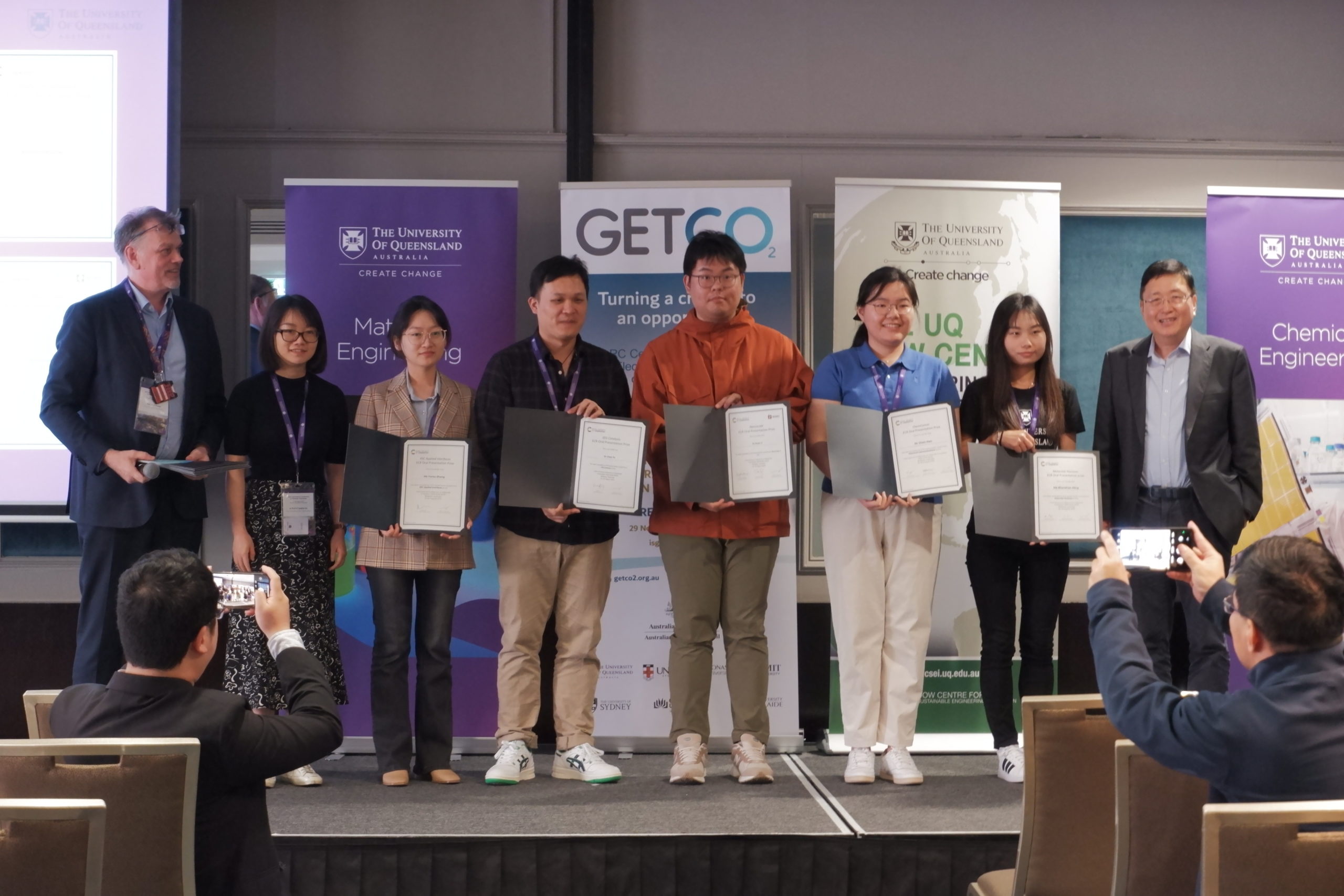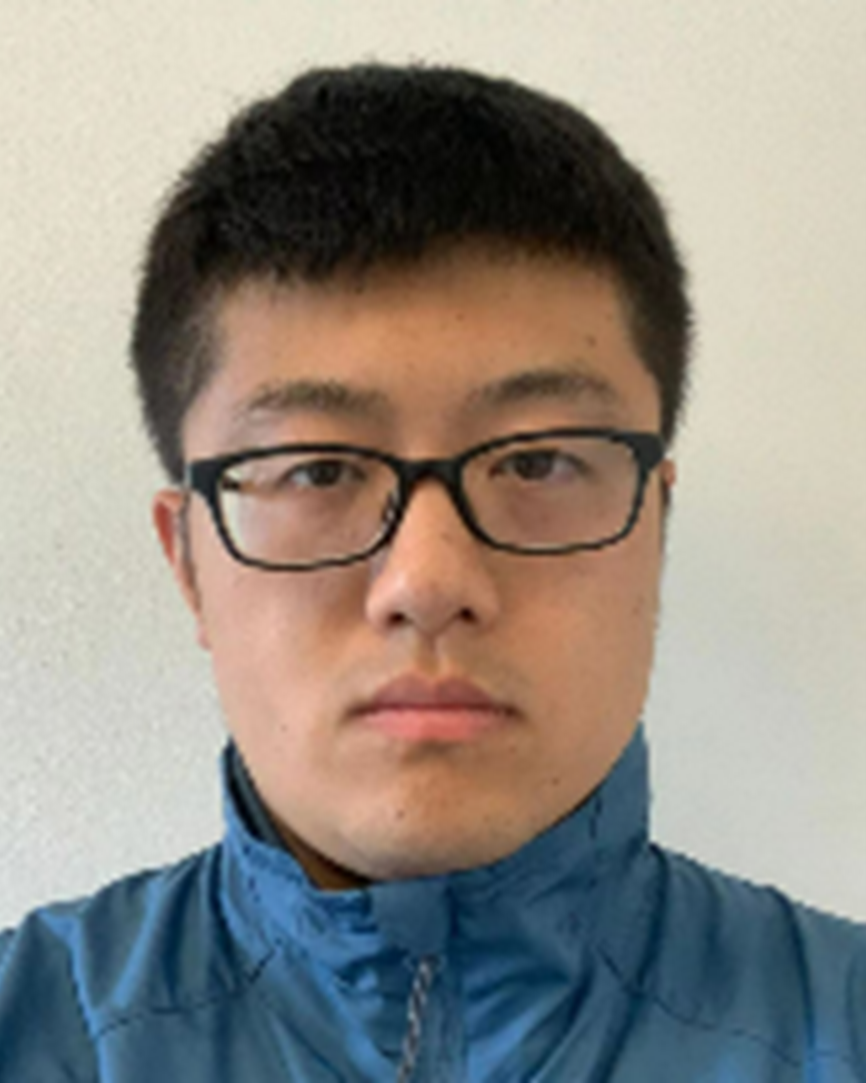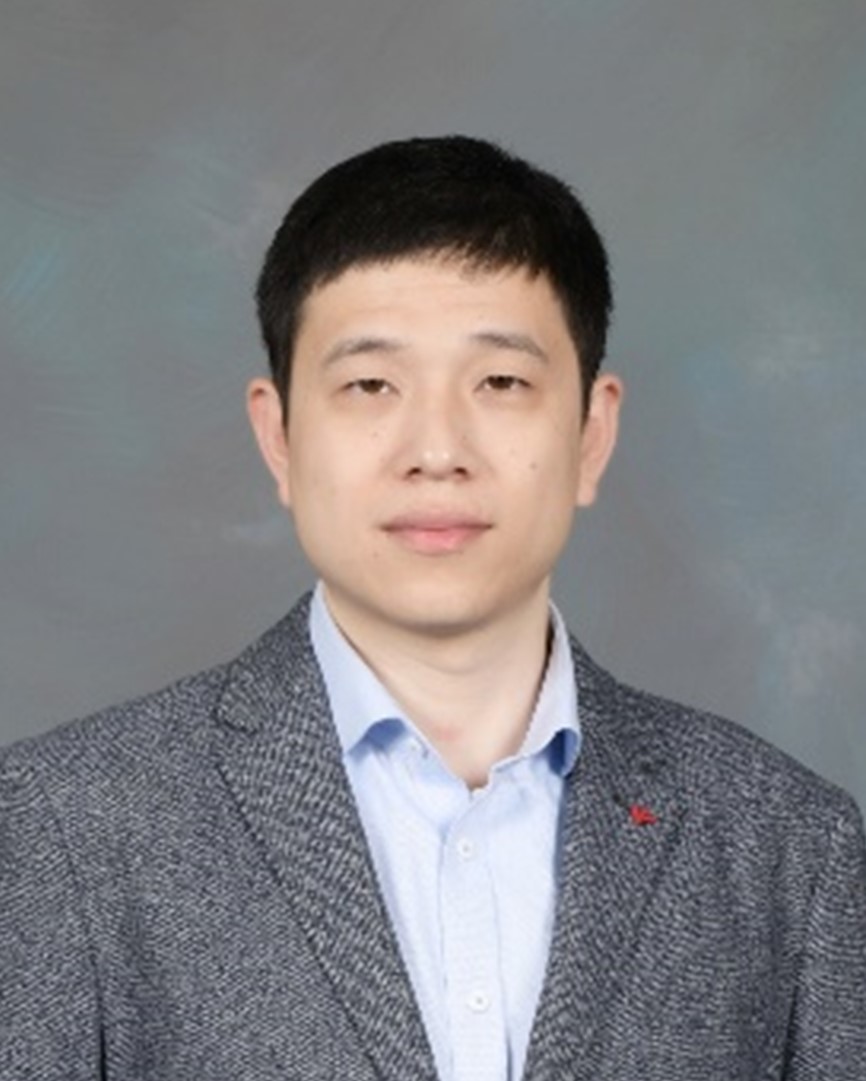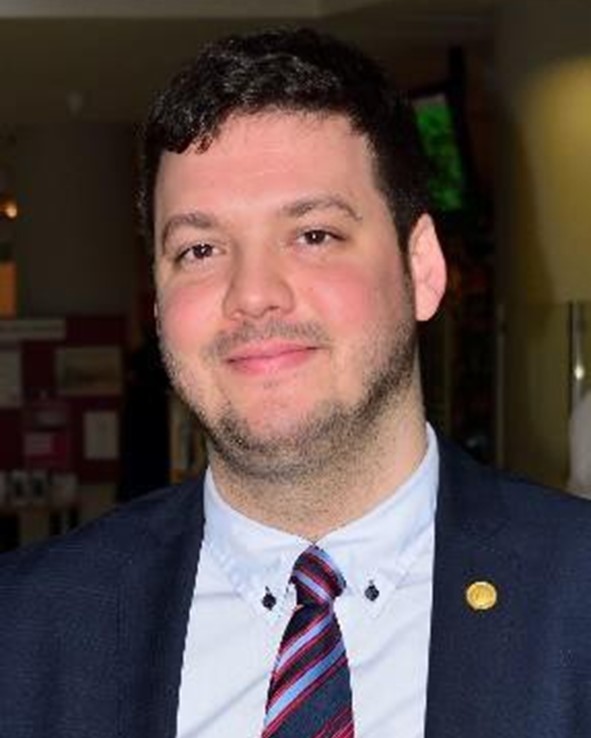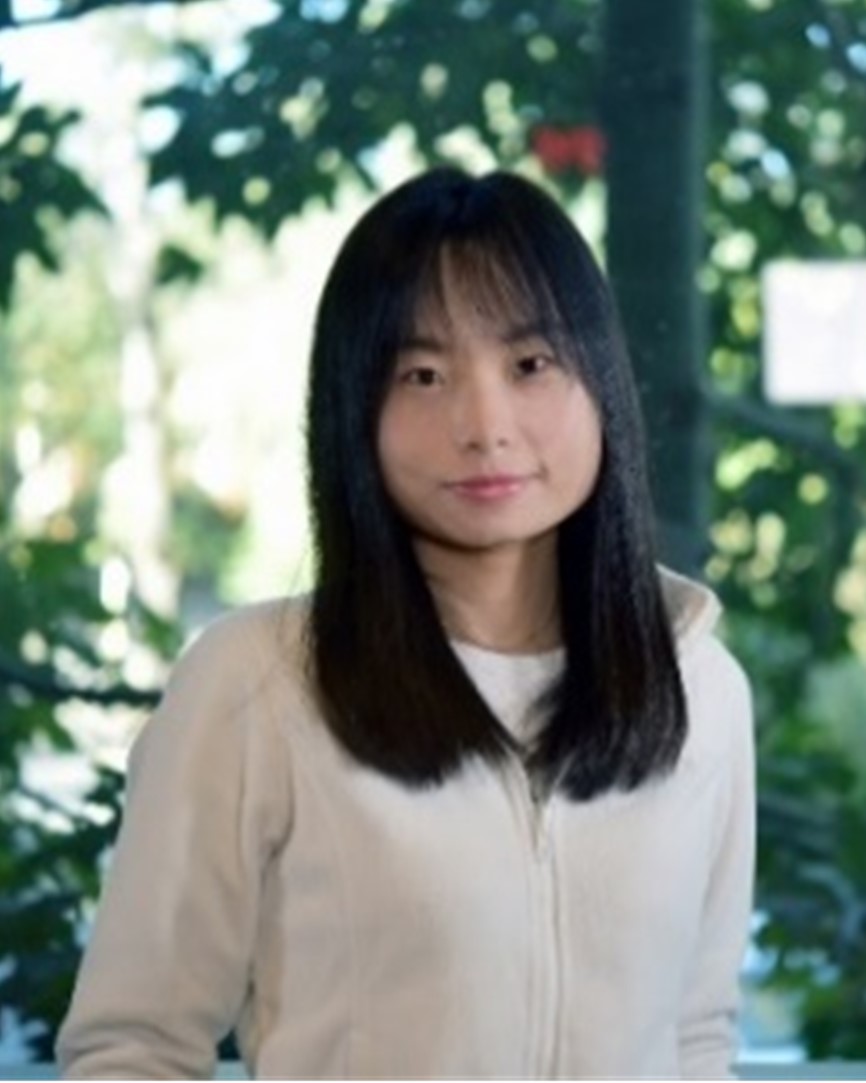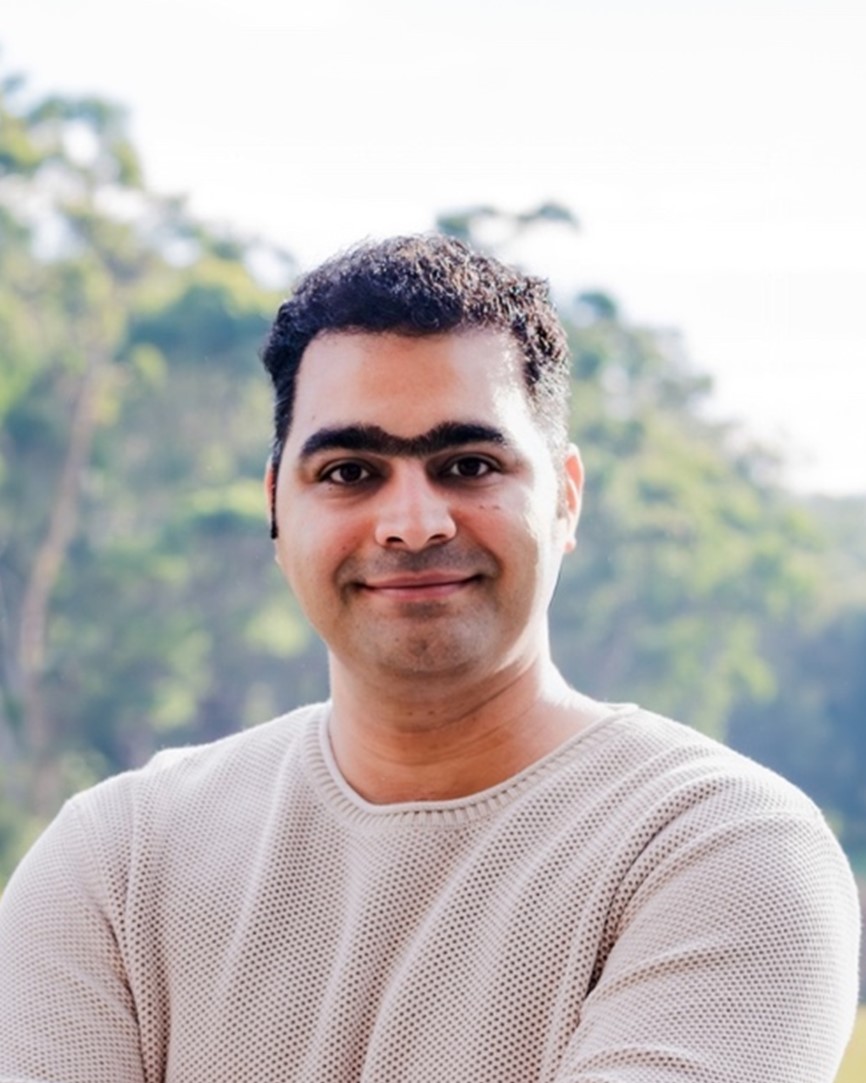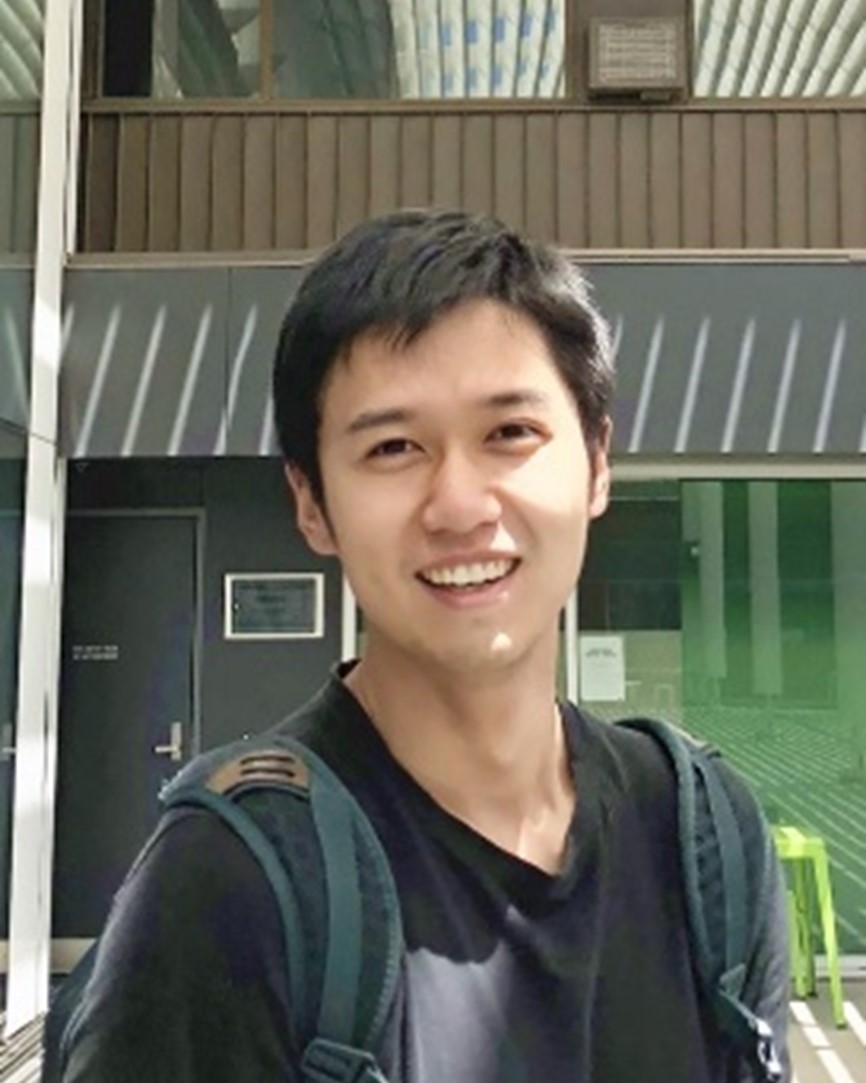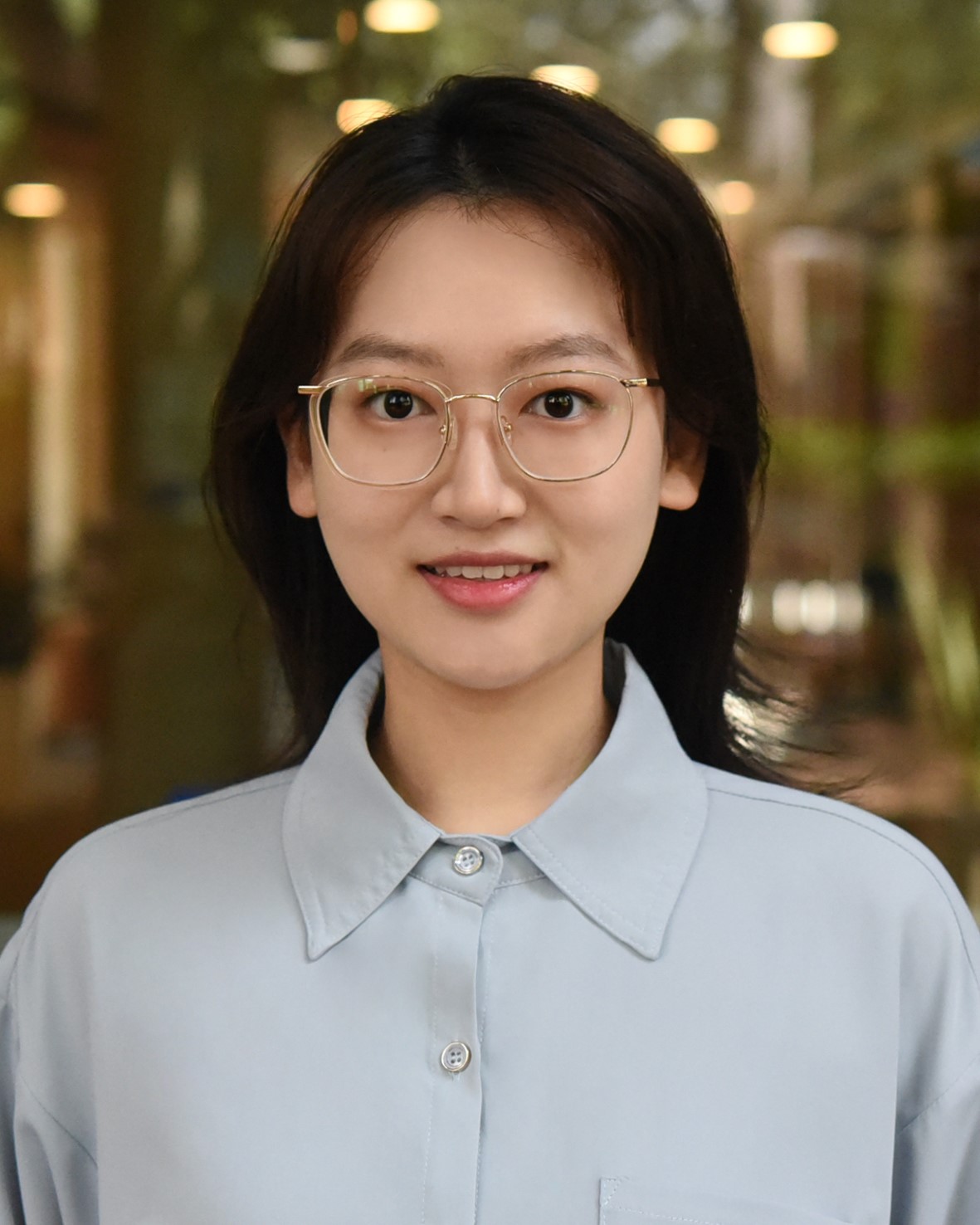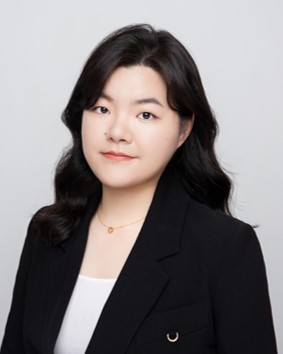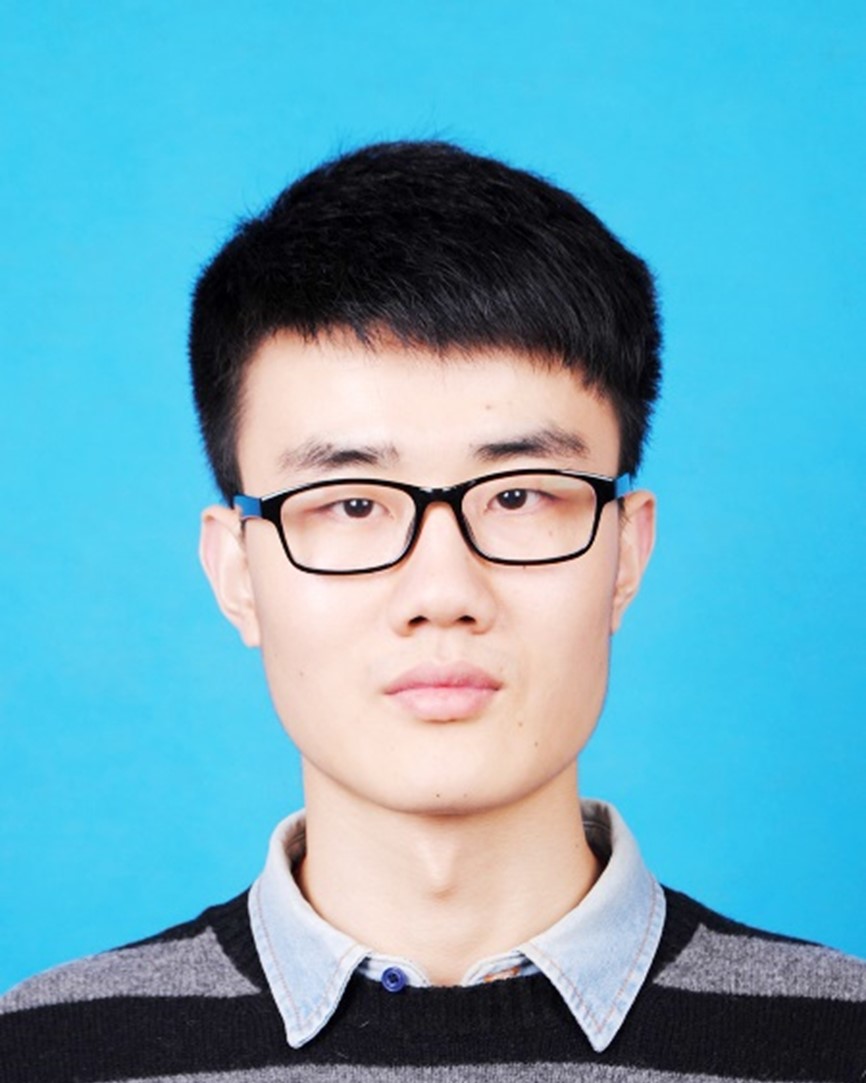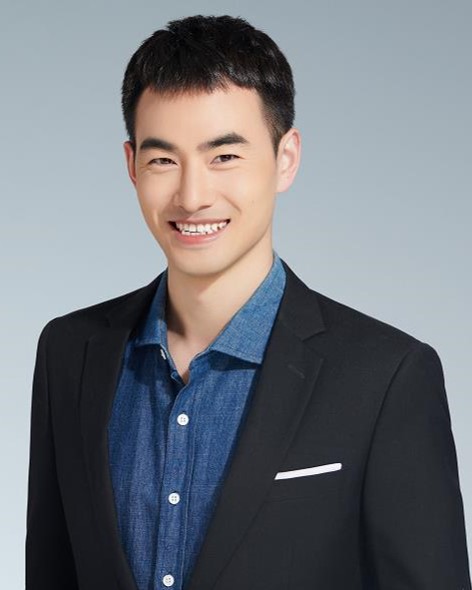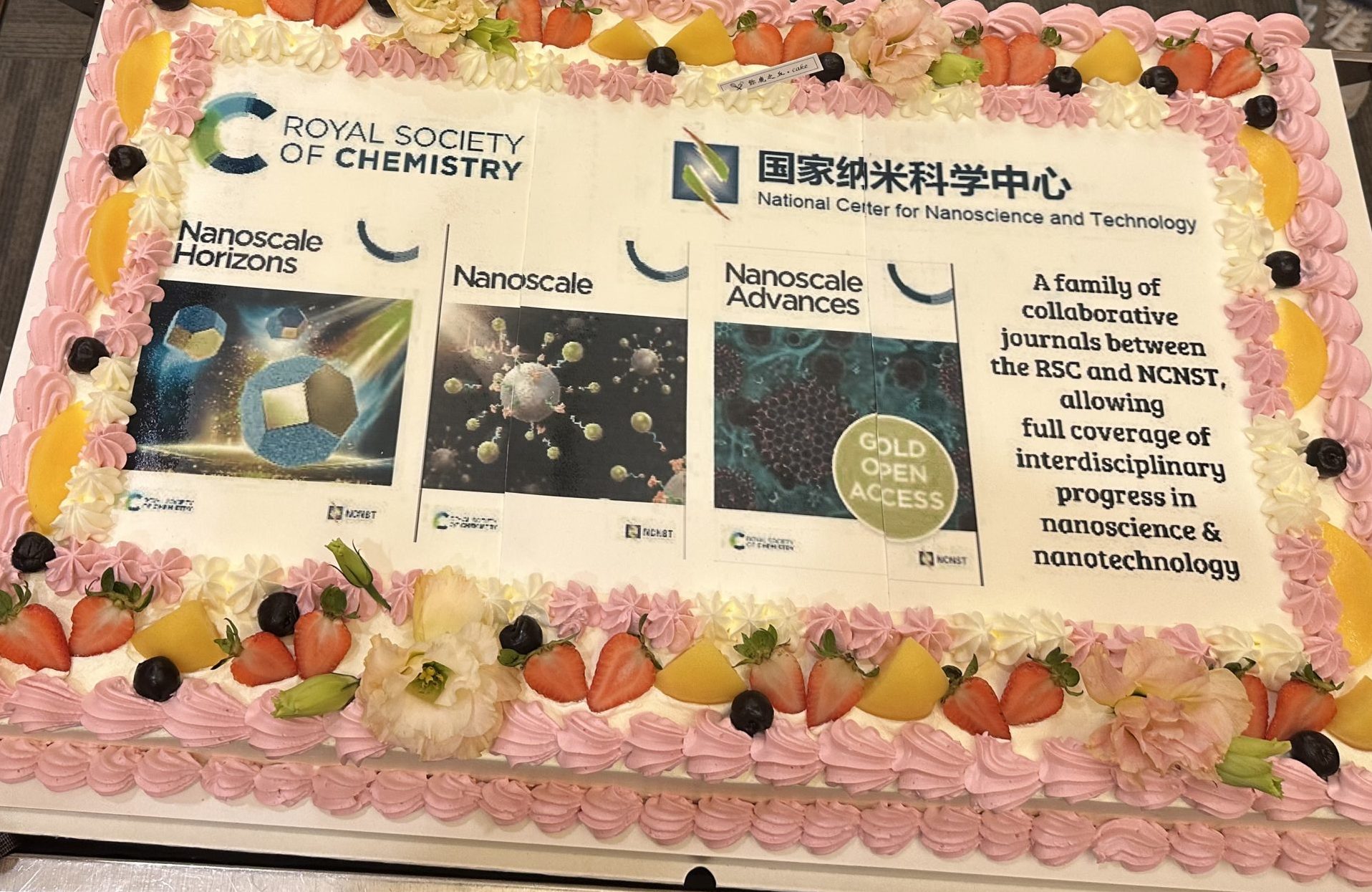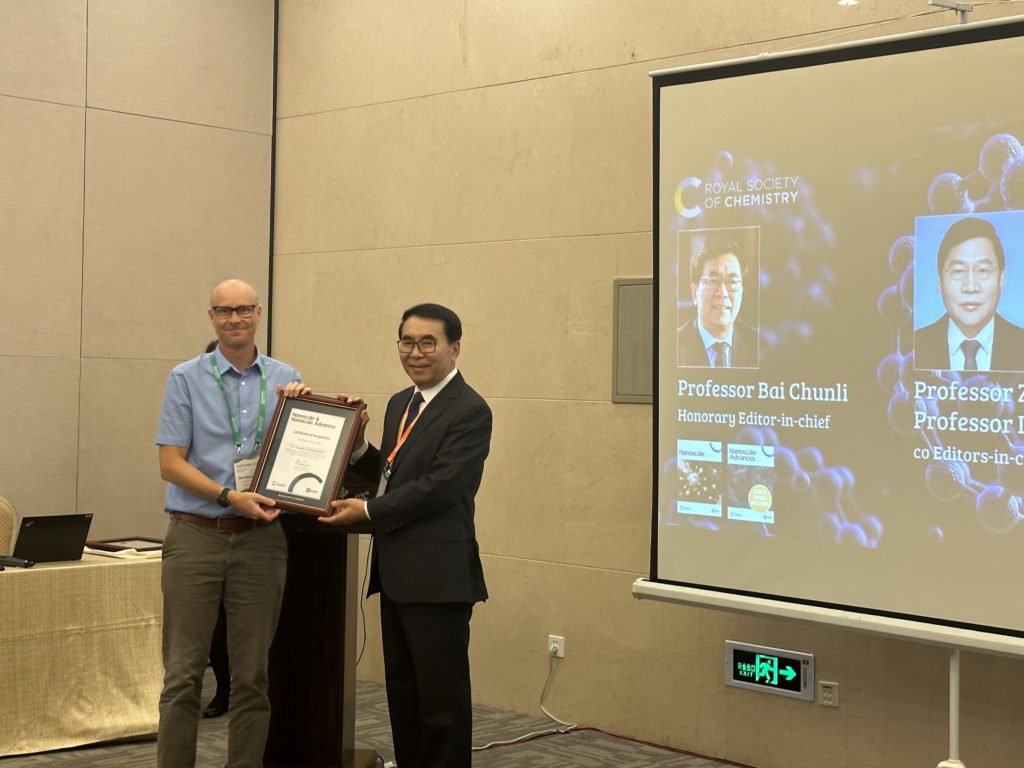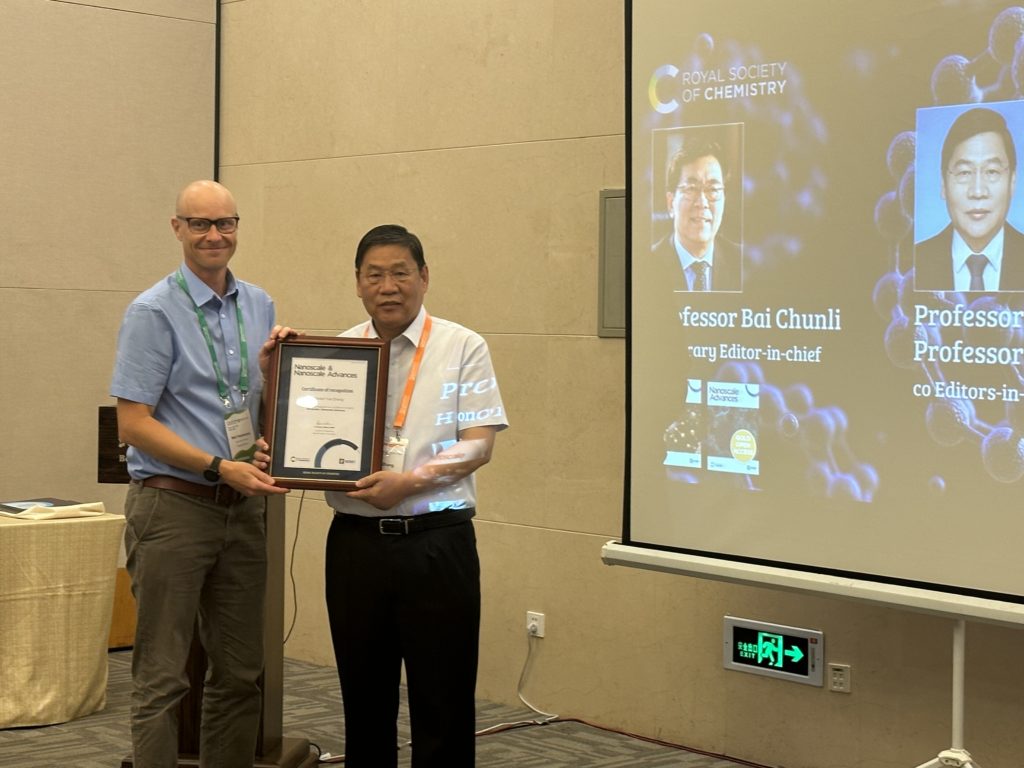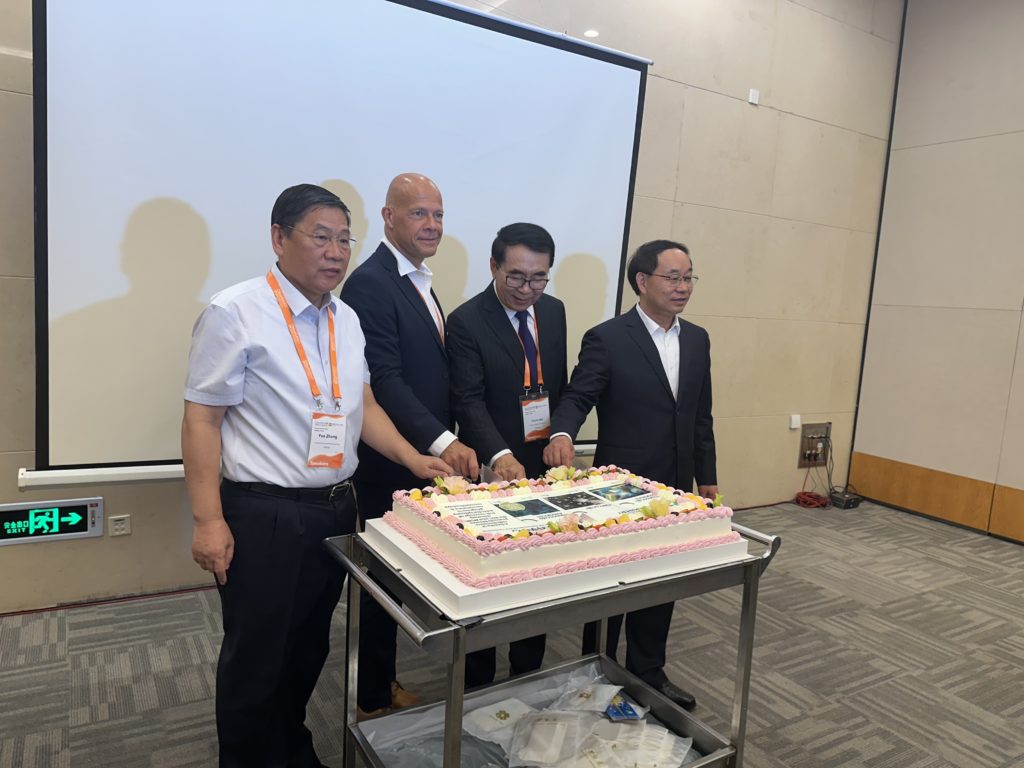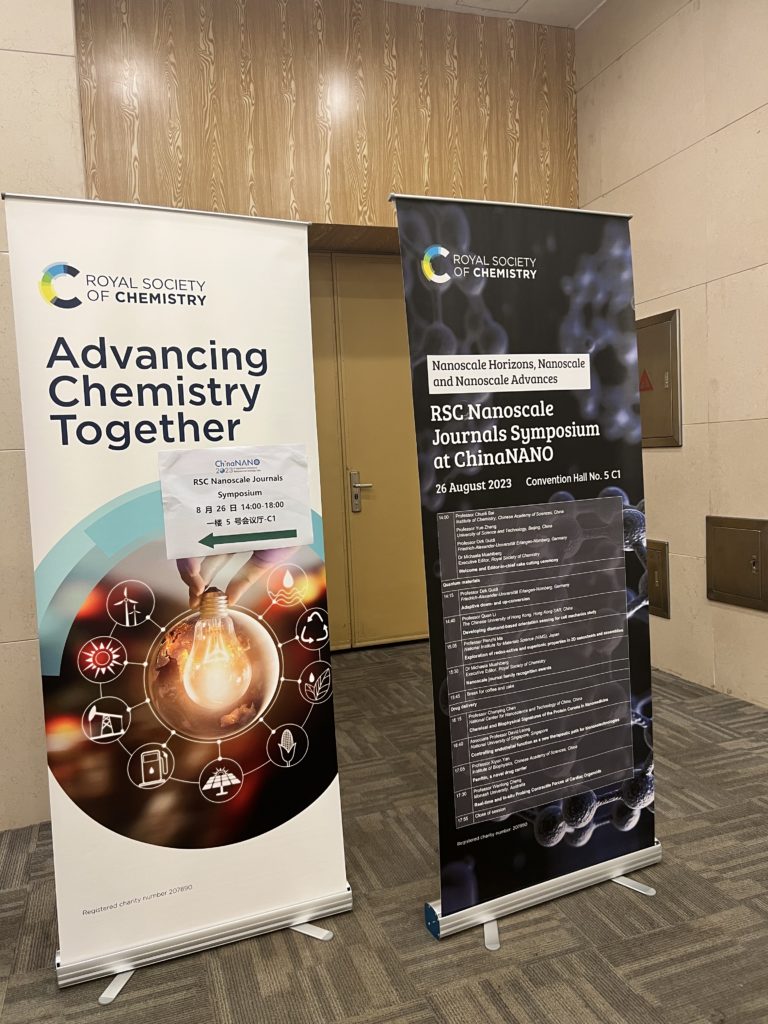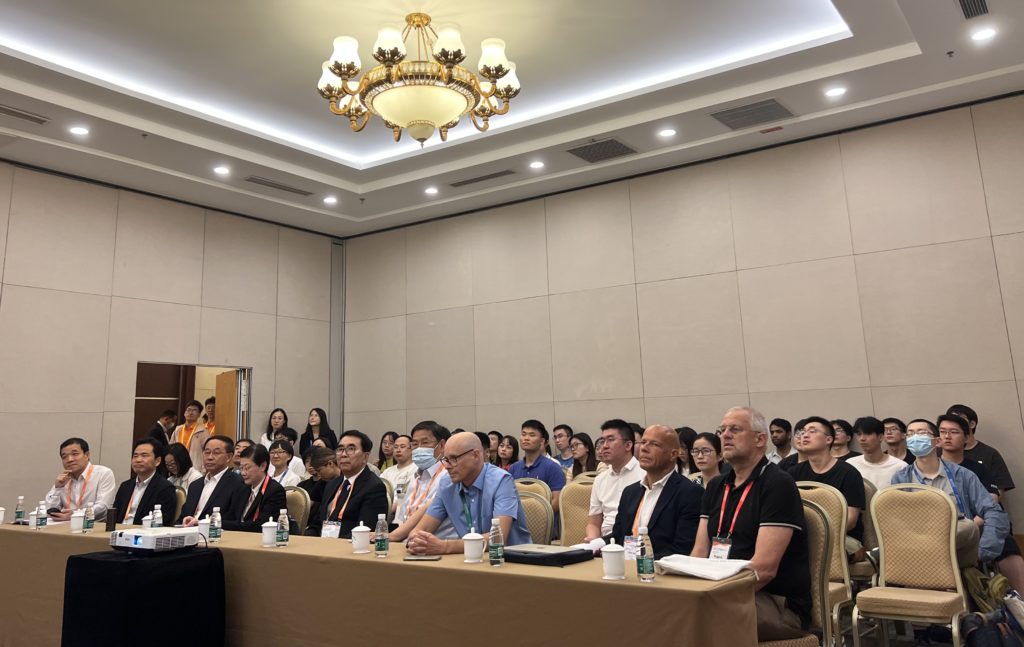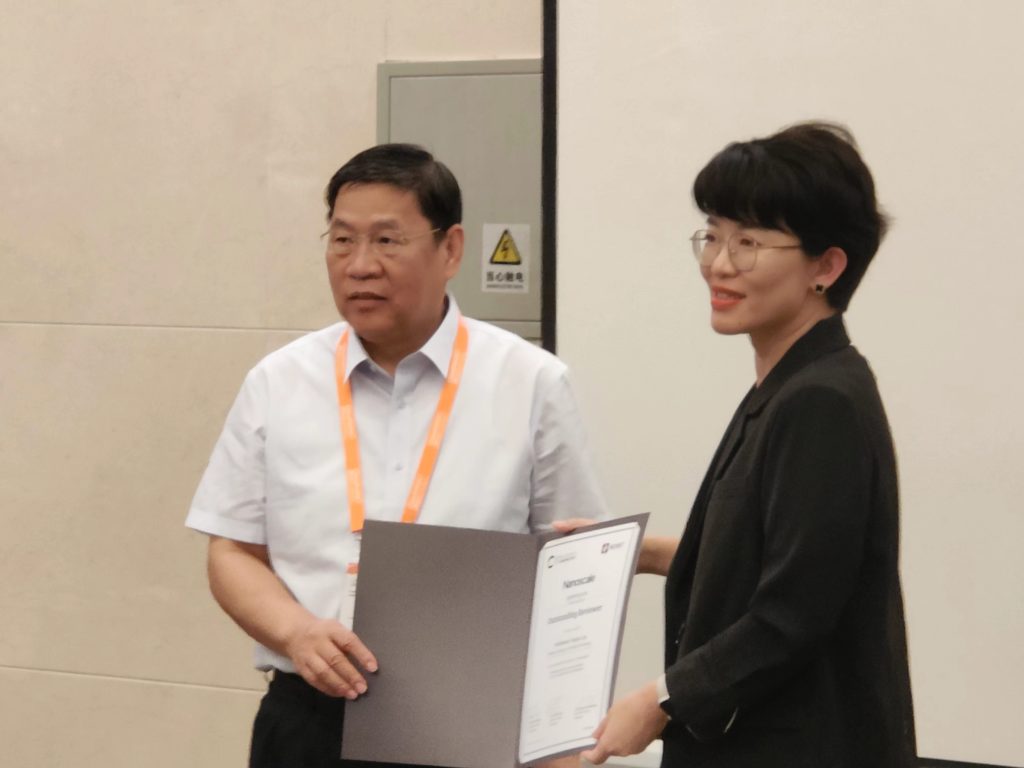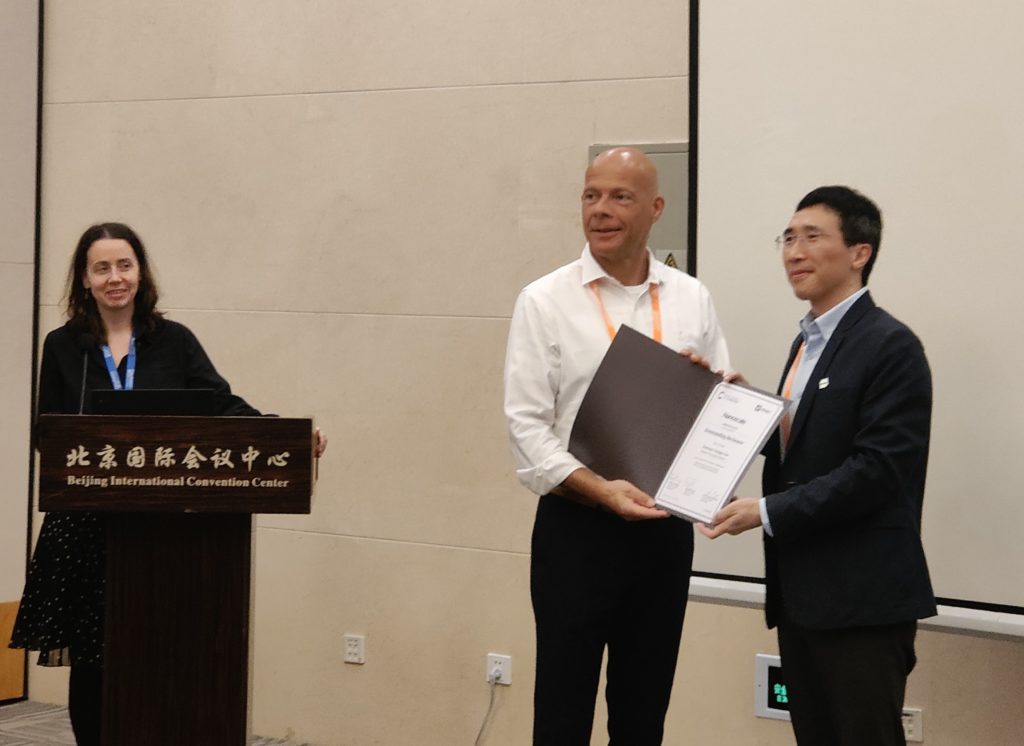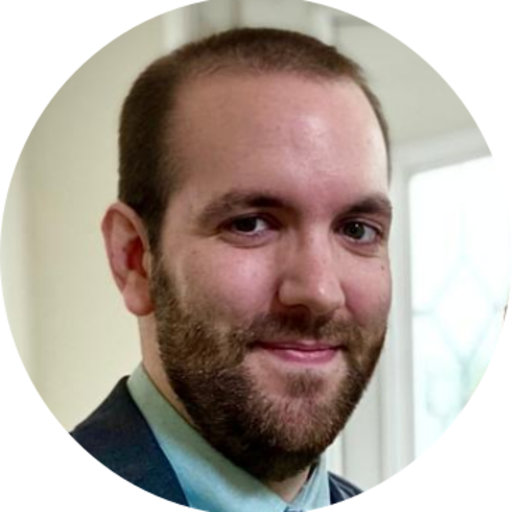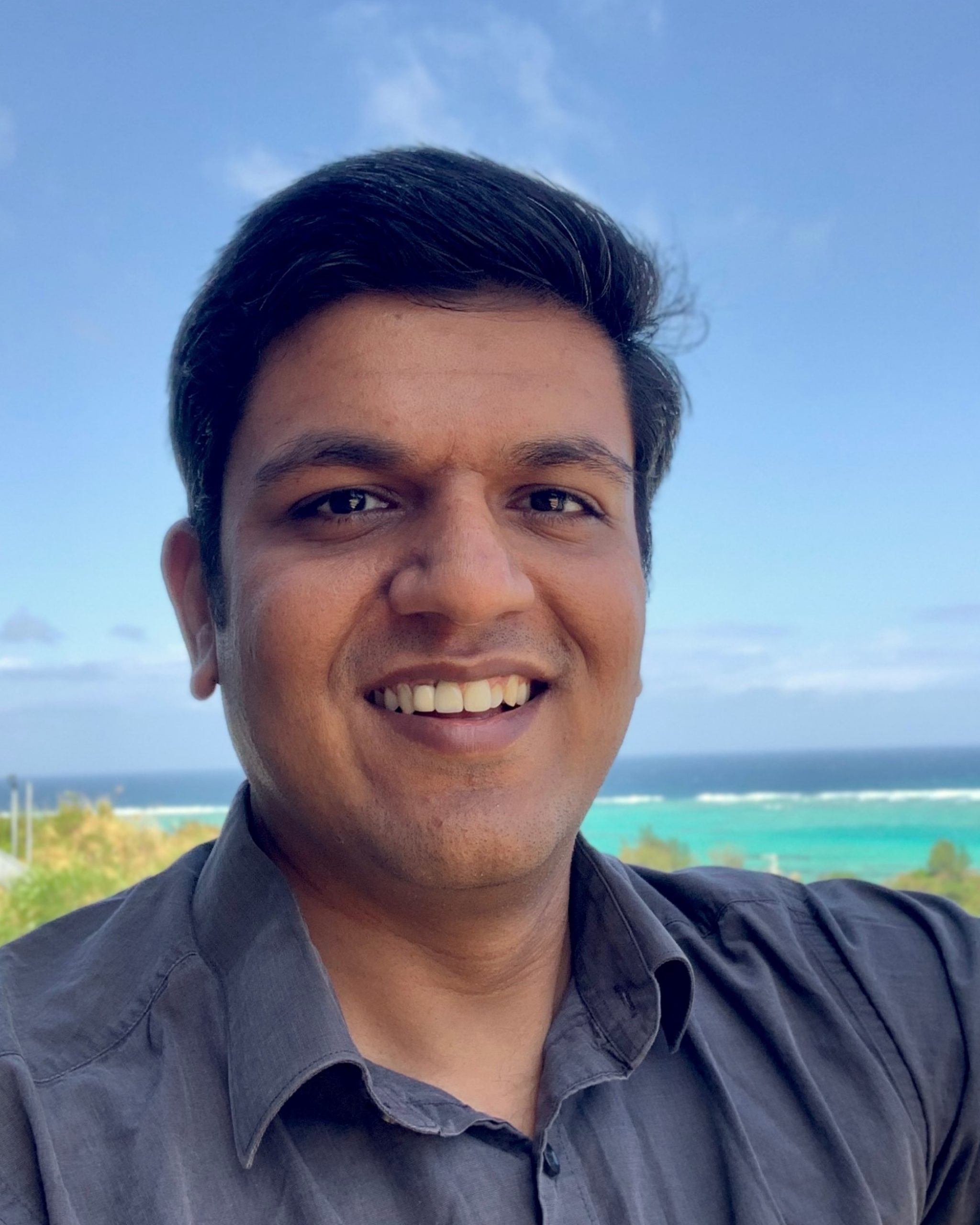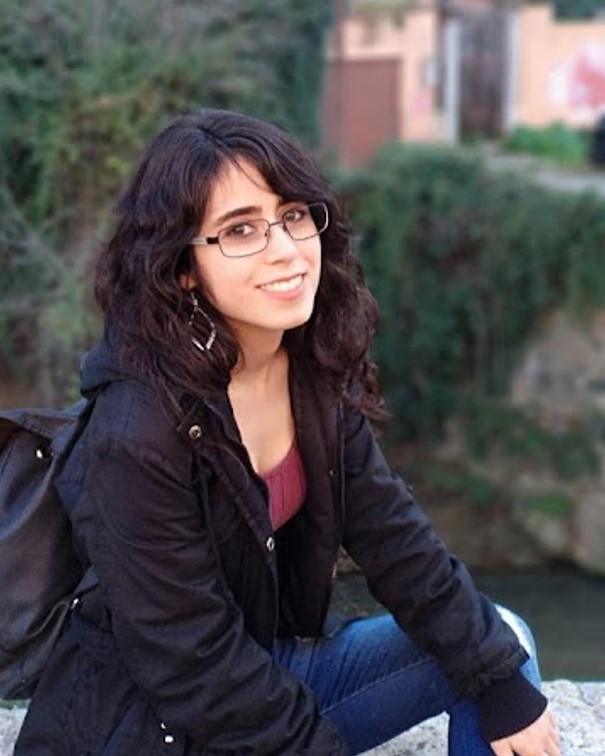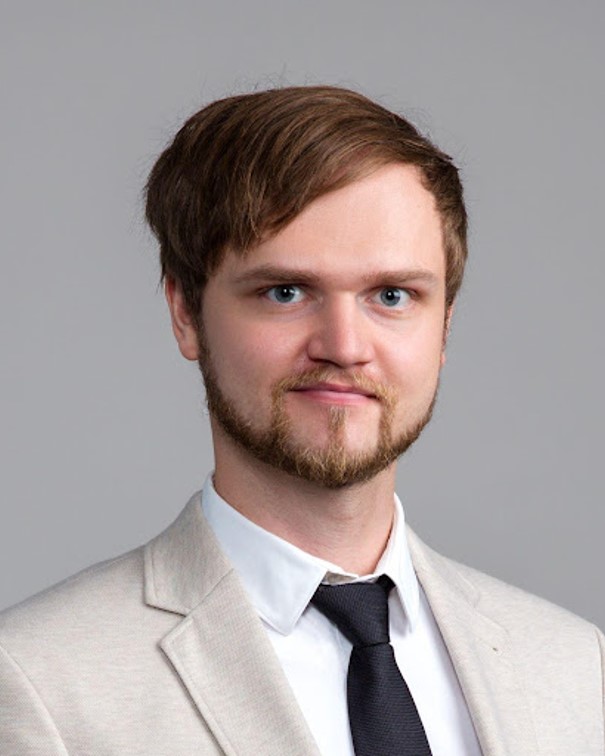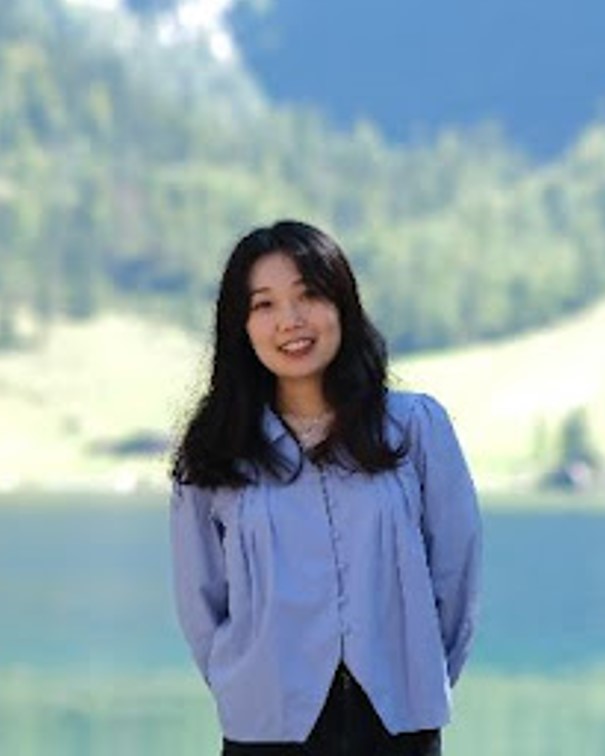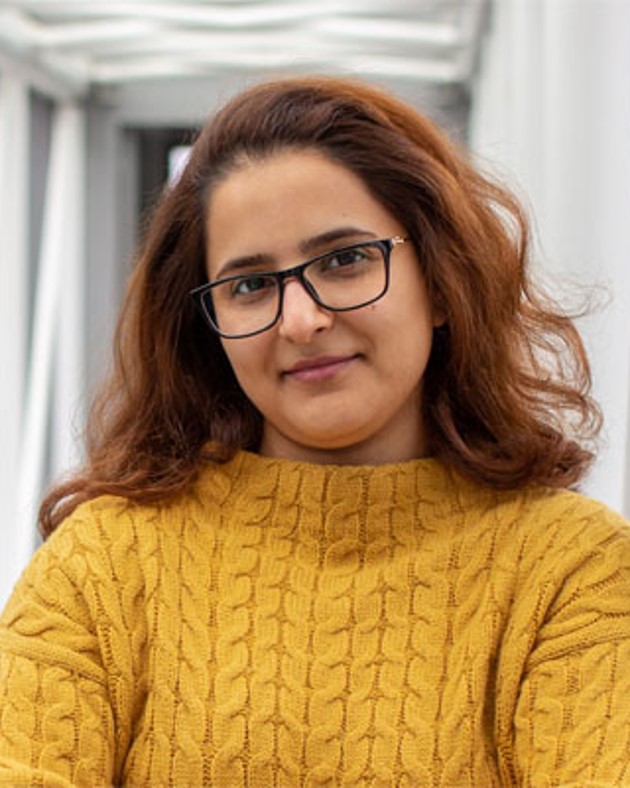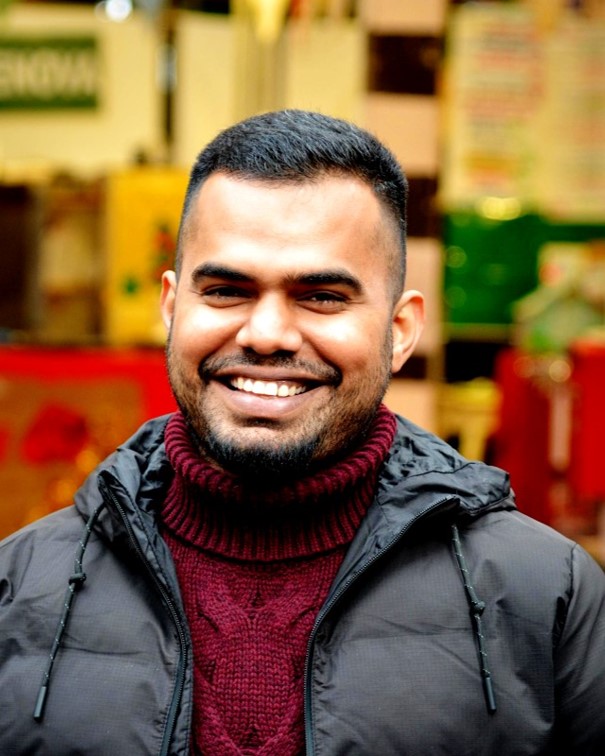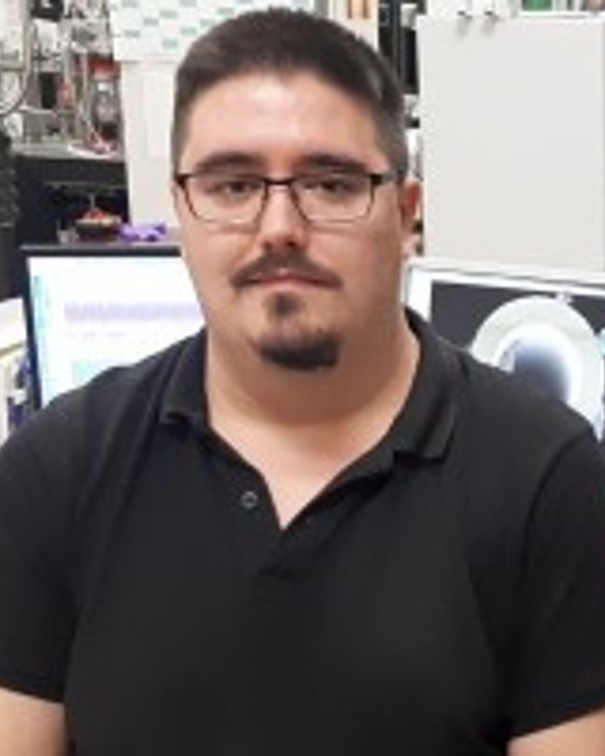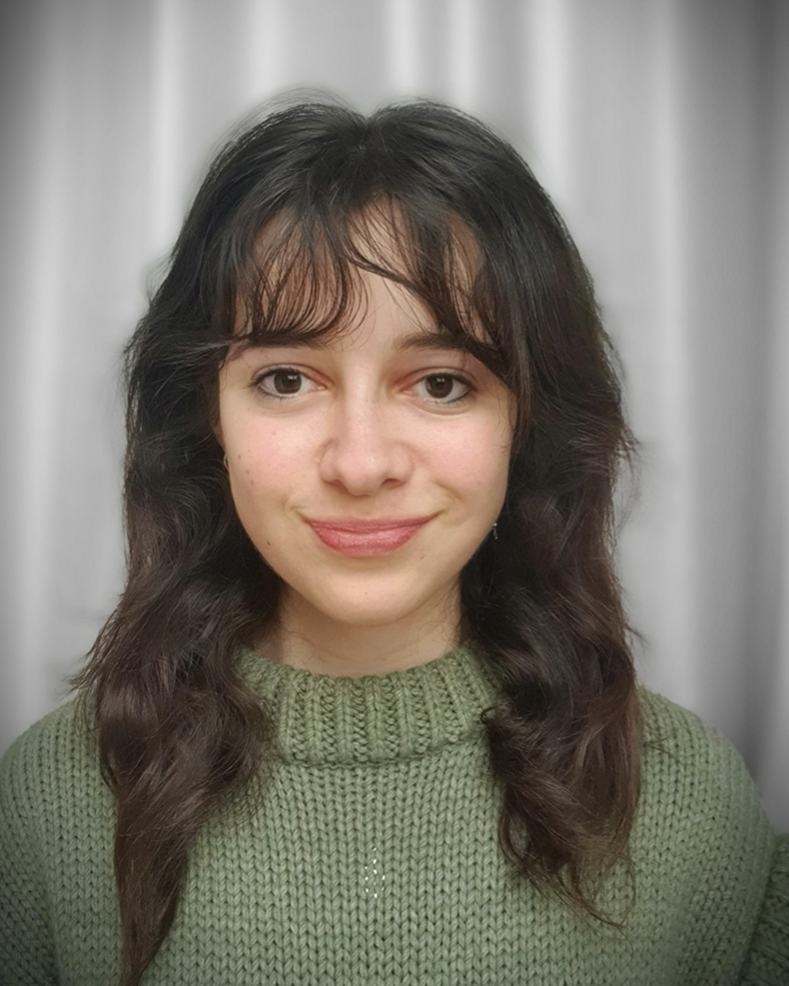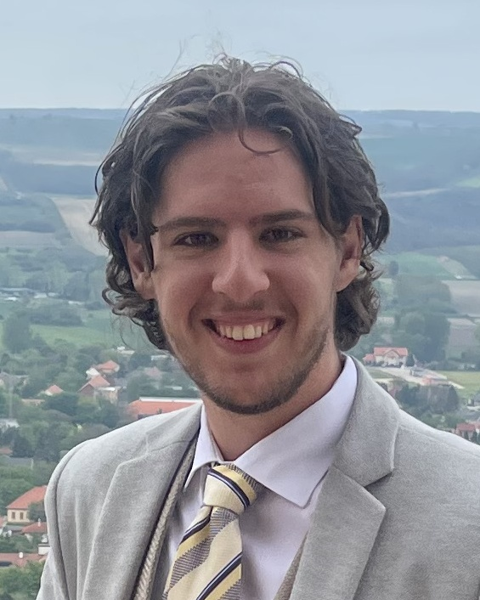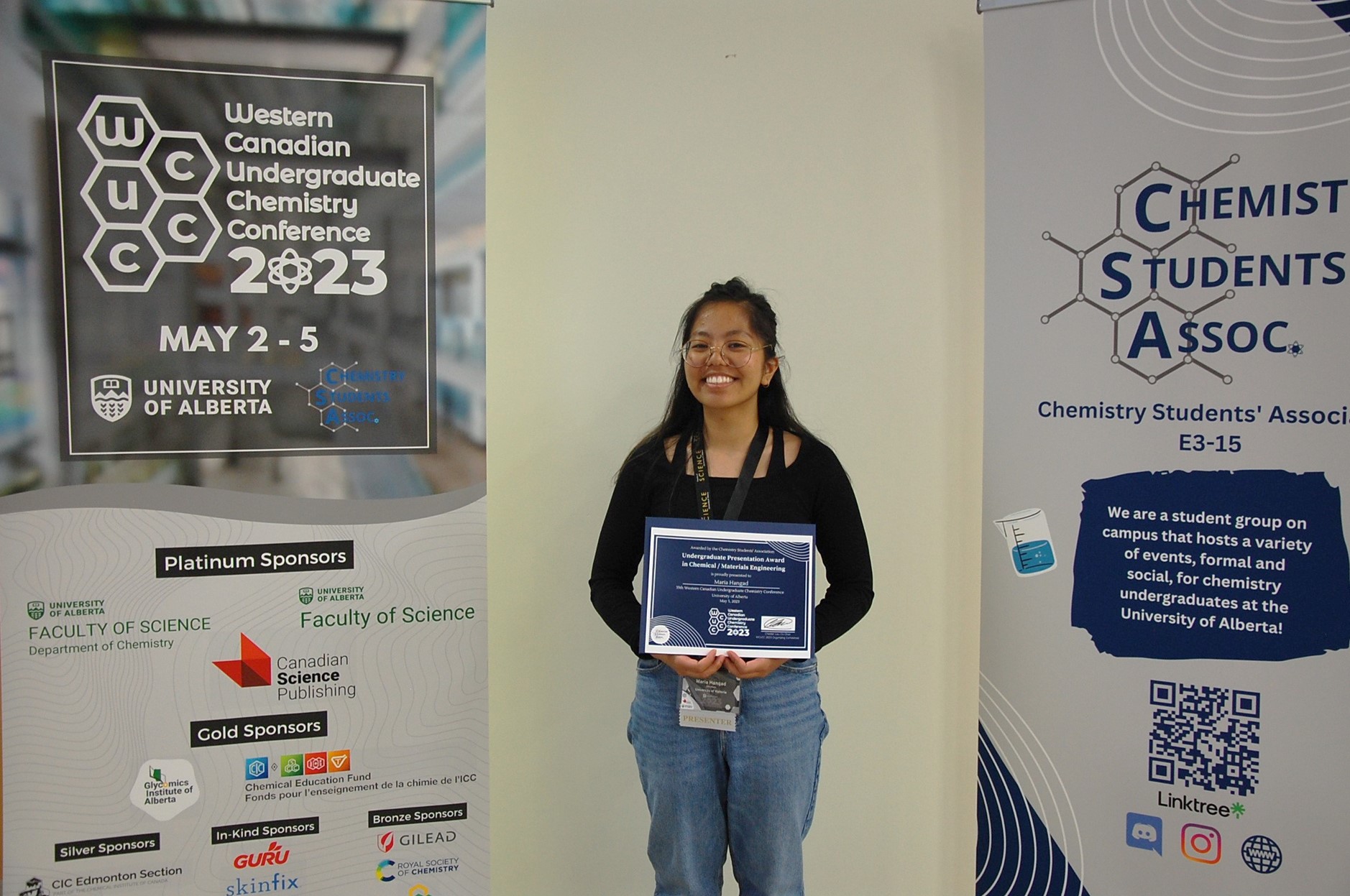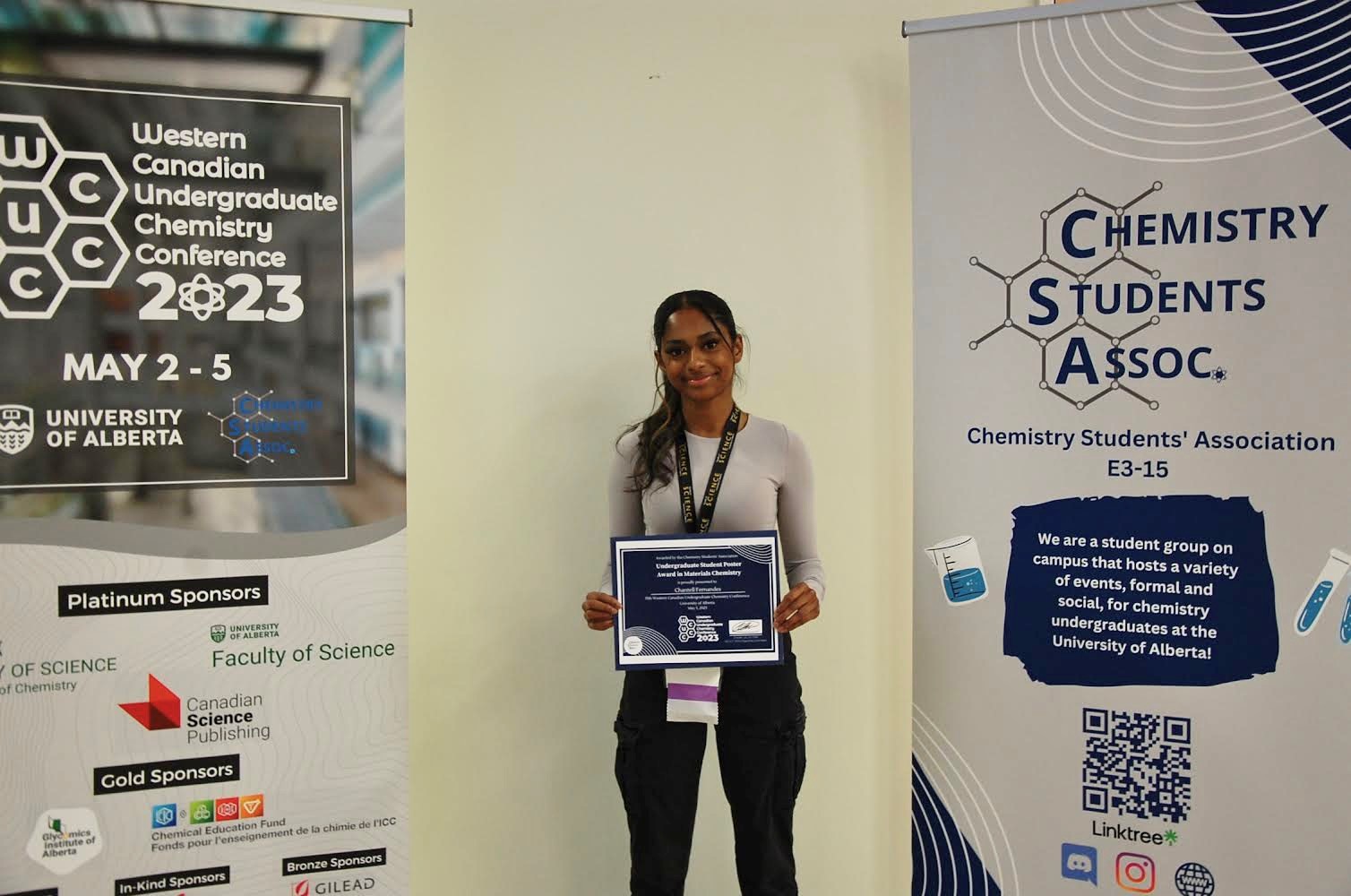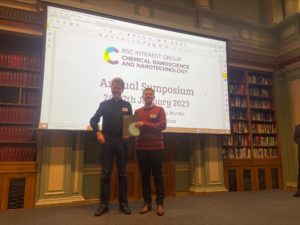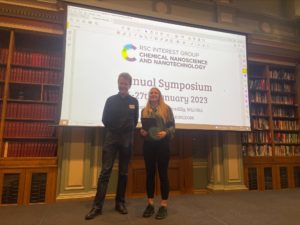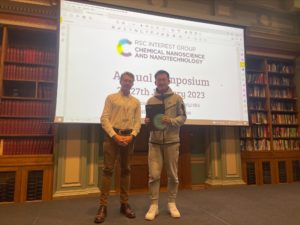
A cake cutting ceremony to celebrate the 10th anniversary of Nanoscale Horizons with Professor Chunli Bai (founding Editor-in-Chief) as well as esteemed editors, colleagues, and friends
 The RSC Nanoscale journal family aims to provide a home for research across the breadth of nanoscience and nanotechnology, incorporating work that advances the field and also contributes exceptional step-change developments. As part of our ongoing efforts to support the community and facilitate dialogue on emerging technologies, during ChinaNANO 2025 we organised a “Deep Dive Discussion” bringing together over 100 leading scientists alongside a panel of field leaders (many of whom are editors for the journal family) to engage in open and dynamic discourse about what they felt would be the next big thing in nanoscience and what role the journals should play in this future.
The RSC Nanoscale journal family aims to provide a home for research across the breadth of nanoscience and nanotechnology, incorporating work that advances the field and also contributes exceptional step-change developments. As part of our ongoing efforts to support the community and facilitate dialogue on emerging technologies, during ChinaNANO 2025 we organised a “Deep Dive Discussion” bringing together over 100 leading scientists alongside a panel of field leaders (many of whom are editors for the journal family) to engage in open and dynamic discourse about what they felt would be the next big thing in nanoscience and what role the journals should play in this future.
Looking back
Nanoscience, as with other fields, has naturally evolved in the last two decades from materials discovery to analysis and ultimately to application. As a relatively young discipline, it has seen a phase of rapid growth over the last decade. The expectation is that this growth will level off but the field will continue to be active and important across many aspects of industry and research.
The evolution of the RSC Nanoscale journals has followed the wider market trends, beginning with the launch of Nanoscale in 2009. As the journal (and the field) developed we quickly became one of the key resources/homes for high quality nanoscience research publications. Over time, the market has grown with the launch of many journals covering both fundamental and applied aspects of nanoscience, but Nanoscale remains a central resource for the community. The launch of Nanoscale Horizons in 2015 and Nanoscale Advances in 2018 highlights the commitment of the RSC to provide coverage across the breadth of nanoscience research publications, in terms of impact, conceptual novelty, and accessibility.
The early publications in nanoscience (and in Nanoscale at the RSC) centred around fundamental synthesis and characterization methodology. The discovery of exciting new materials such as carbon nanotubes and later graphene led to exponential increases in the number of research papers investigating the synthesis, properties, and potential applications of these new technologies. Over time the understanding of these materials grew, leading ultimately to the application of carbon nanotubes in commercial technologies to enhance material properties in sports equipment, vehicles, etc. A new generation of materials are now emerging: MXenes. Article numbers on MXene research show the same year-on-year growth now as those on graphene did ten years ago. The other area exhibiting high growth in publications each year is Artificial Intelligence (AI) and its application to nanoscience technologies.
From miniaturisation to intelligent design
 Here at the RSC Nanoscale journal family, we are committed to supporting the evolving landscape of nanoscience through inclusive, high-quality, interdisciplinary publishing. The recent Deep Dive Discussion at ChinaNANO 2025 provided a valuable opportunity to engage with leading researchers on the transformative role of Artificial Intelligence (AI) in nanoscience and the future direction of the field. AI is rapidly reshaping scientific inquiry, and its integration into nanoscience follows the long emerging trend shifting focus away from making things smaller towards making things smarter. Our panellists highlighted AI’s potential to accelerate complex modelling tasks such as how to model protein folding or interactions at biointerfaces, as well as applications in drug design, target screening, clinical translation, optimization, and cost reduction.
Here at the RSC Nanoscale journal family, we are committed to supporting the evolving landscape of nanoscience through inclusive, high-quality, interdisciplinary publishing. The recent Deep Dive Discussion at ChinaNANO 2025 provided a valuable opportunity to engage with leading researchers on the transformative role of Artificial Intelligence (AI) in nanoscience and the future direction of the field. AI is rapidly reshaping scientific inquiry, and its integration into nanoscience follows the long emerging trend shifting focus away from making things smaller towards making things smarter. Our panellists highlighted AI’s potential to accelerate complex modelling tasks such as how to model protein folding or interactions at biointerfaces, as well as applications in drug design, target screening, clinical translation, optimization, and cost reduction.
However, challenges lie ahead. Our panellists agreed that reliable, high-quality data remains a significant bottleneck for effective AI training, especially in complex biological systems. There was strong consensus on the need for domain-specific AI models tailored to nanoscience, rather than relying solely on general-purpose tools. As with any conceptually new technology, there is significant hype around how AI will transform every field in which it is applied. Transformative ideas in science often come from unexpected places, and there is ongoing debate about whether statistics-driven AI can ever be expected to capture truly novel discoveries. These philosophical limits of AI in scientific discovery should be considered in every application of the tool. It is known that AI excels at pattern recognition and automation, but by using existing data based on known laws it can only review the past. Novel insights require intuitive leaps and these remain a hallmark of human creativity in science. Ultimately the best applications of AI will automate lengthy but trivial tasks, freeing up human time and capabilities to be focussed on new approaches and conceptual advances. AI will act as a catalyst, blurring disciplinary boundaries and fostering synergistic development within nanoscience and other fields.
Following these discussions and the recommendations of our panellists, the Nanoscale family will aim to increase it’s coverage of AI-related content through a number of avenues. Firstly, the panellists are invited to contribute a series of Perspective articles on how AI may impact their particular research fields in the future. Additionally we plan to announce a special issue on the topic in 2026
Looking ahead

Professor Yue Zhang (Editor-in-Chief of Nanoscale and Nanoscale Advances) shared his perspectives and plans for the future of the journal family
We anticipate that there will be other vital aspects to the future development of nanoscience beyond the integration of AI tools. The development of nanoscience and nanotechnology is a dual-engine process, driven by both fundamental discoveries and technological applications. The core of the nanoscience field lies in studying structure–function relationships at the nanoscale, involving new structures, materials, and effects. Advances in the understanding of structure–function relationships rely heavily on the continual development of nanoscale characterization techniques. The foundational role played by microscopy and, more recently, large-scale facilities (X-ray, synchrotrons, attosecond lasers etc.) cannot be underplayed. These technological advancements in measurement will push new understandings of nanoscale properties, bringing further development both for AI modelling, but also across other applications. Additionally, the ability to achieve large-scale production of high-quality, uniform nanomaterials for applications is a fundamental requirement for industry to consider adopting nanomaterials in their processes and products. The importance of this aspect of nanoscience is demonstrated by the 2023 Nobel Prize in Chemistry which rewarded the development of controllable synthesis of quantum dots. The ability to make quantum dots of well-defined and uniform size in a fully reproducible way has allowed industry to develop game-changing LEDs (and later OLEDs), which are now ubiquitous in colour displays and TV screens. The Nanoscale family has continued to feature fundamental synthesis and structure-function investigations in its publications over the past 10 years, in keeping with the essential nature of this work to the nanoscience field. Topical collections lead by leaders in the field have covered magnetic nanoparticles, nanoarchitectonics, chiral nanomaterials and characterisation techniques such as SERS. Looking ahead we will continue to prioritise high quality fundamental research in the journals, alongside the exciting application-focussed advancements that feature strongly in the publishing landscape today.
Acknowledgements

From left to right: Professor Xiaohui Qiu, Professor Chunying Chen, Professor Qingliang Liao, Professor Baoquan Ding, Professor Shiwei Wu, Professor Renzhi Ma, Professor Qing Dai, and Professor Quan Li
Special thanks are given to Professor Zhiyong Tang (Advisory Board of Nanoscale Horizons) for his assistance with the organisation of the discussion, Professor Xiaohui Qiu (Scientific Editor of Nanoscale Horizons) who chaired the panel, as well as the panellists who provided their viewpoints that form this basis of this article: Professor Chunying Chen (NCNST), Professor Qingliang Liao (University of Science and Technology Beijing), Professor Shiwei Wu (Fudan University), Professor Baoquan Ding (NCNST), Professor Renzhi Ma (NIMS), Professor Qing Dai (NCNST), Professor Quan Li (The Chinese University of Hong Kong), and Professor Jin Zhang (Peking University).











